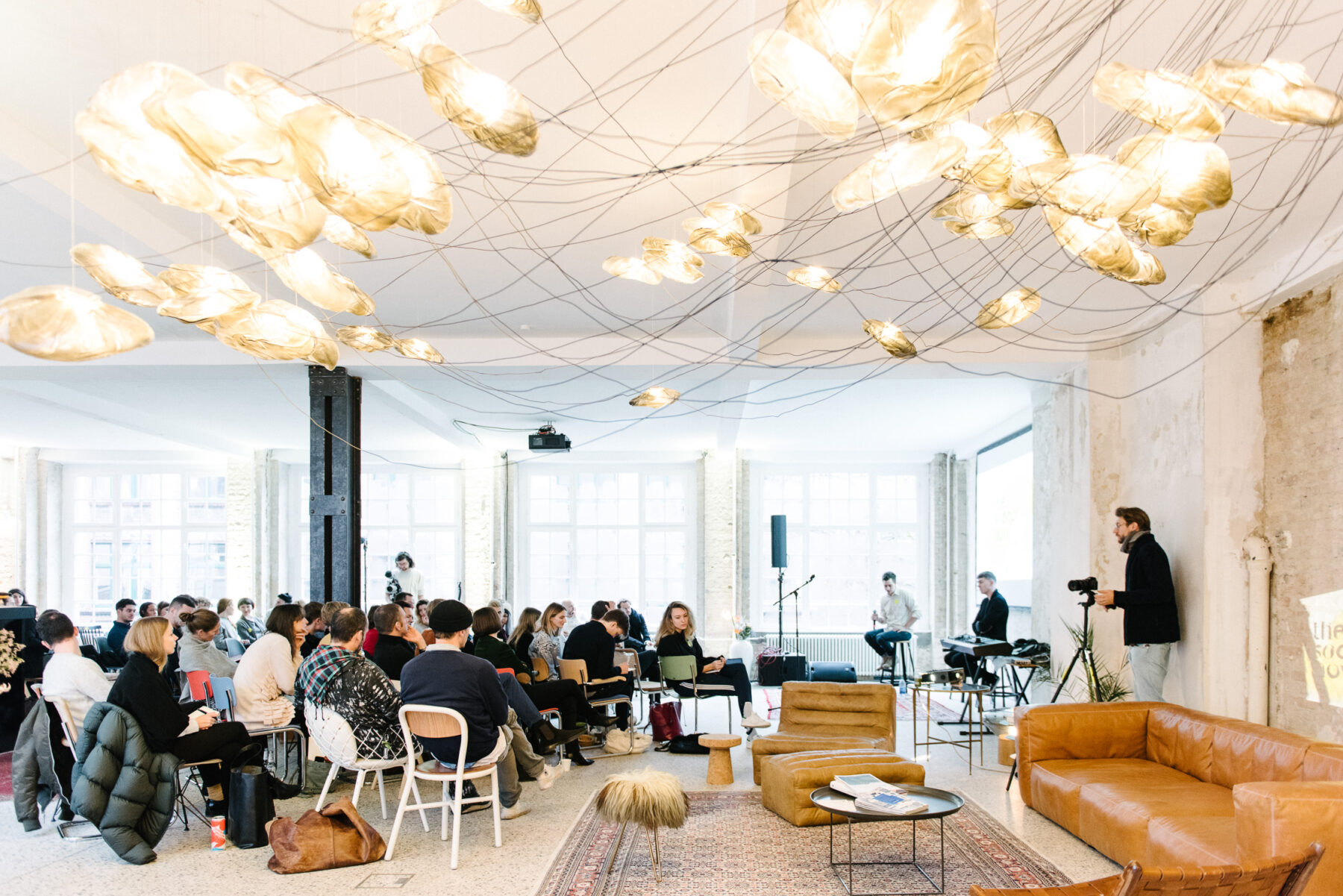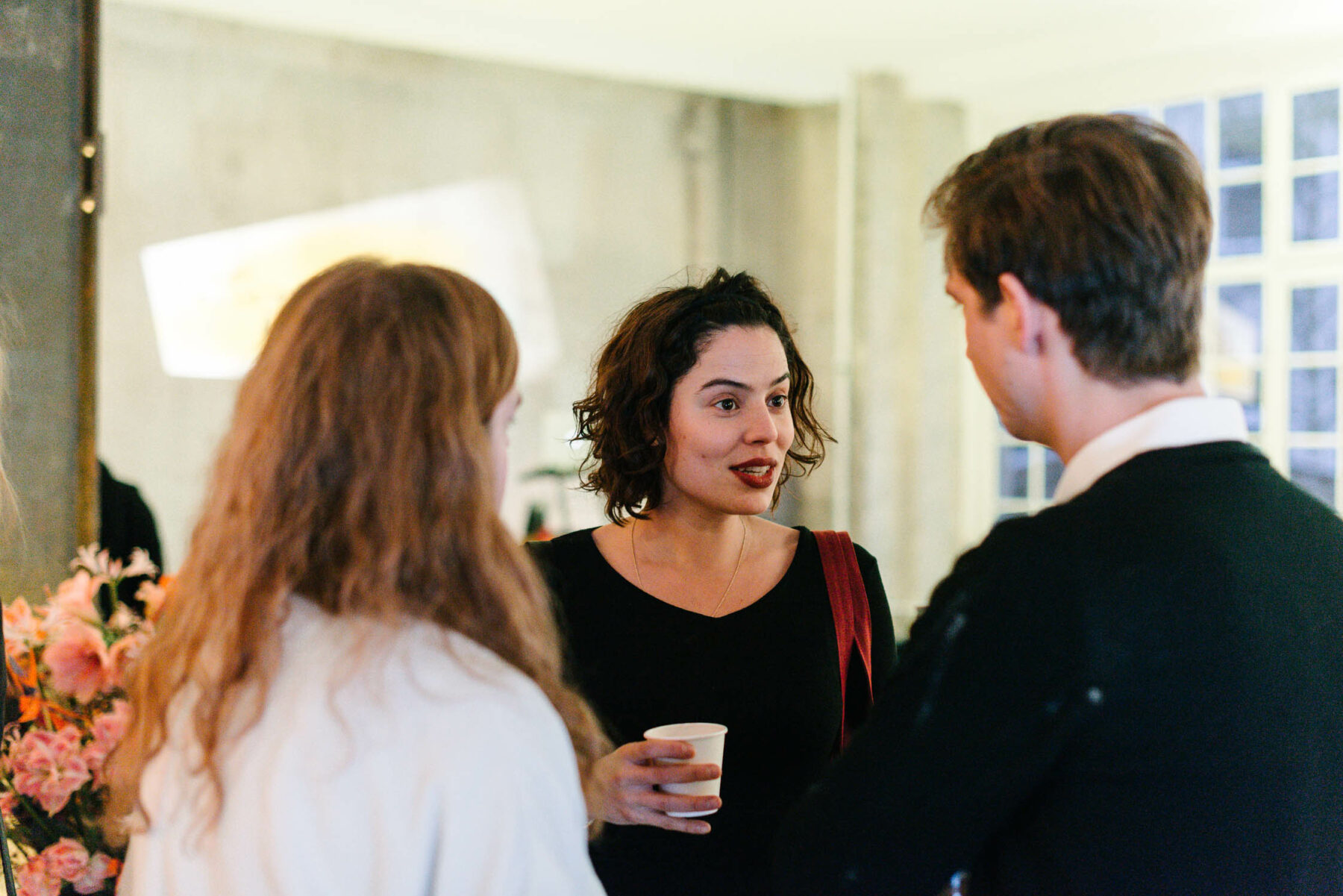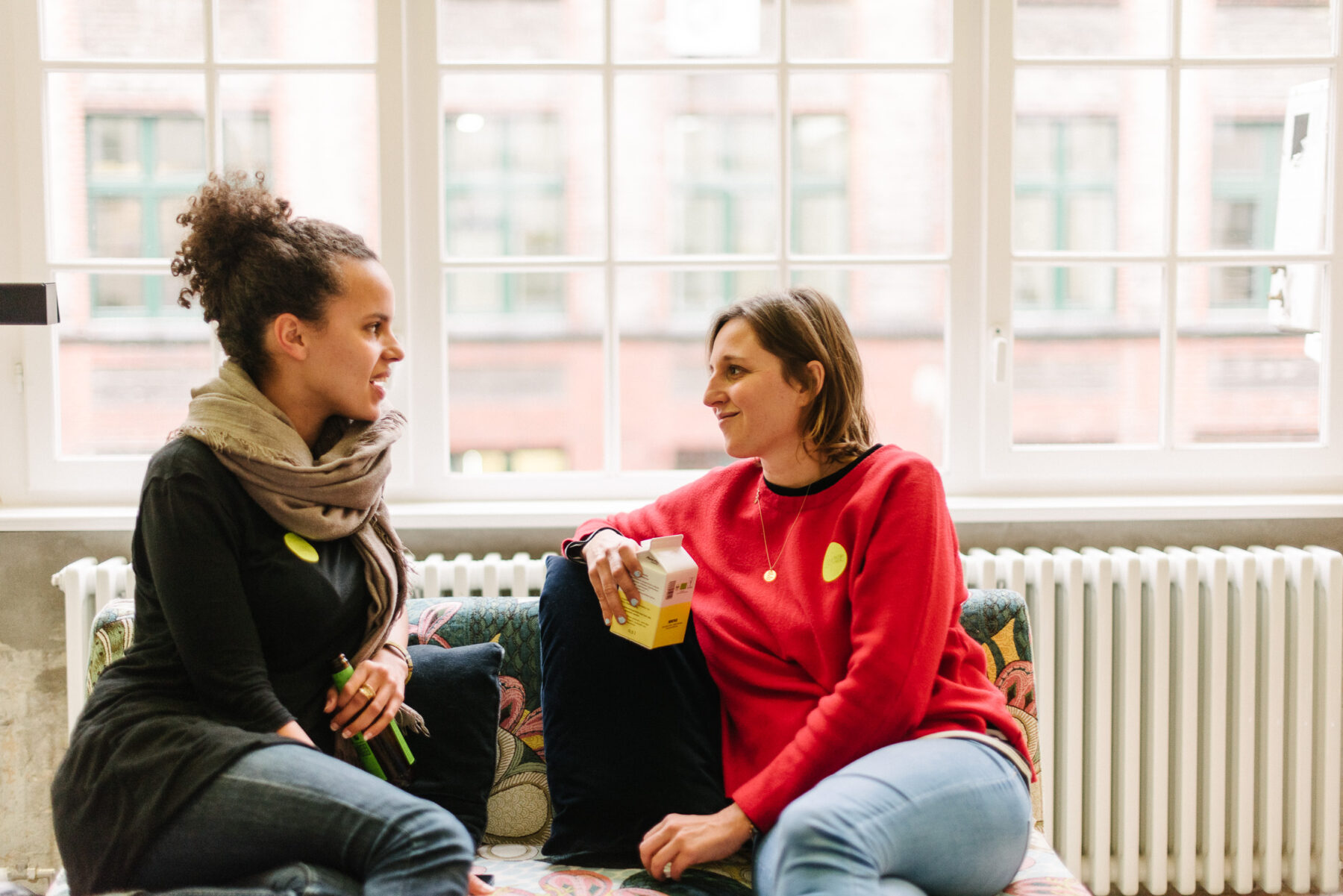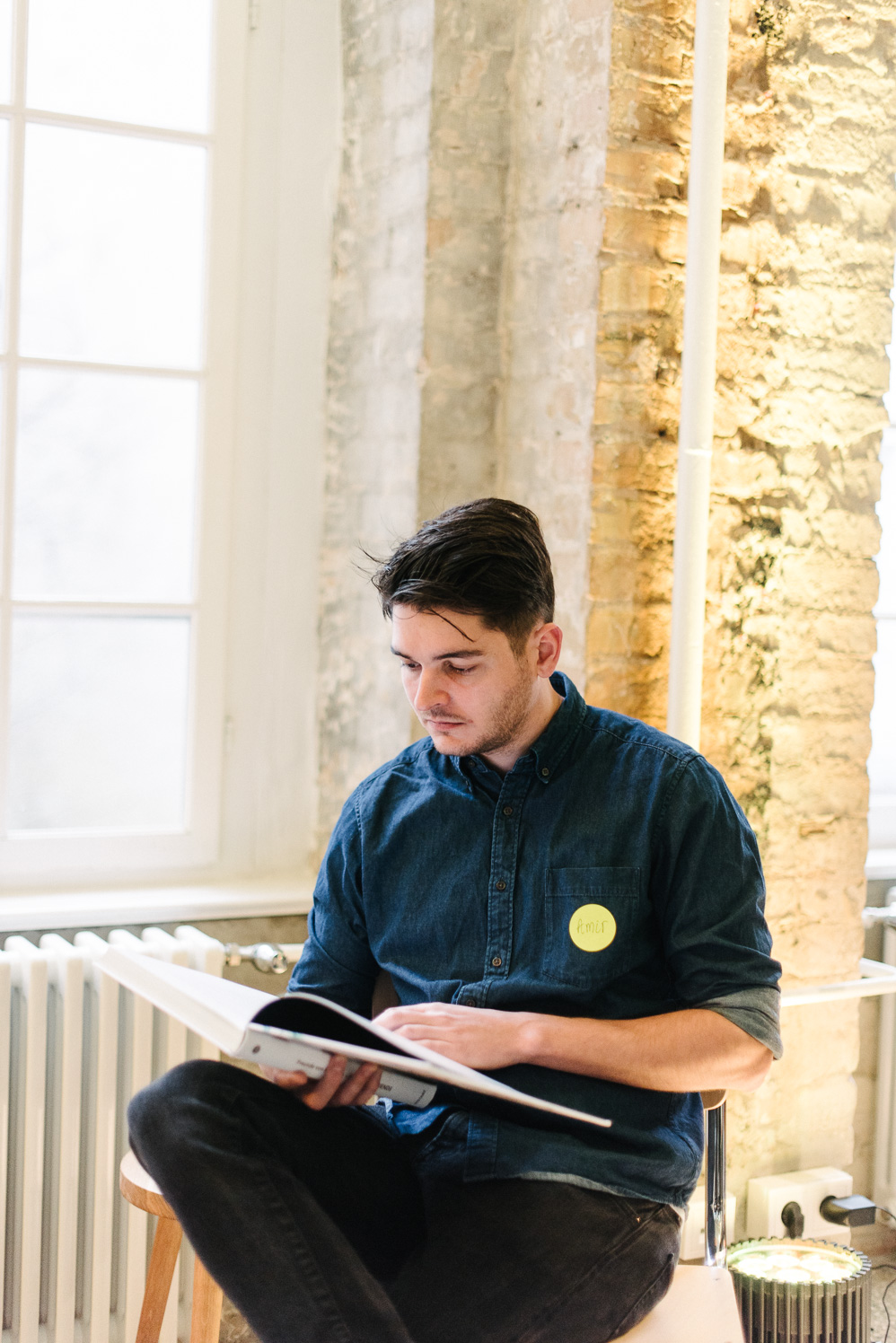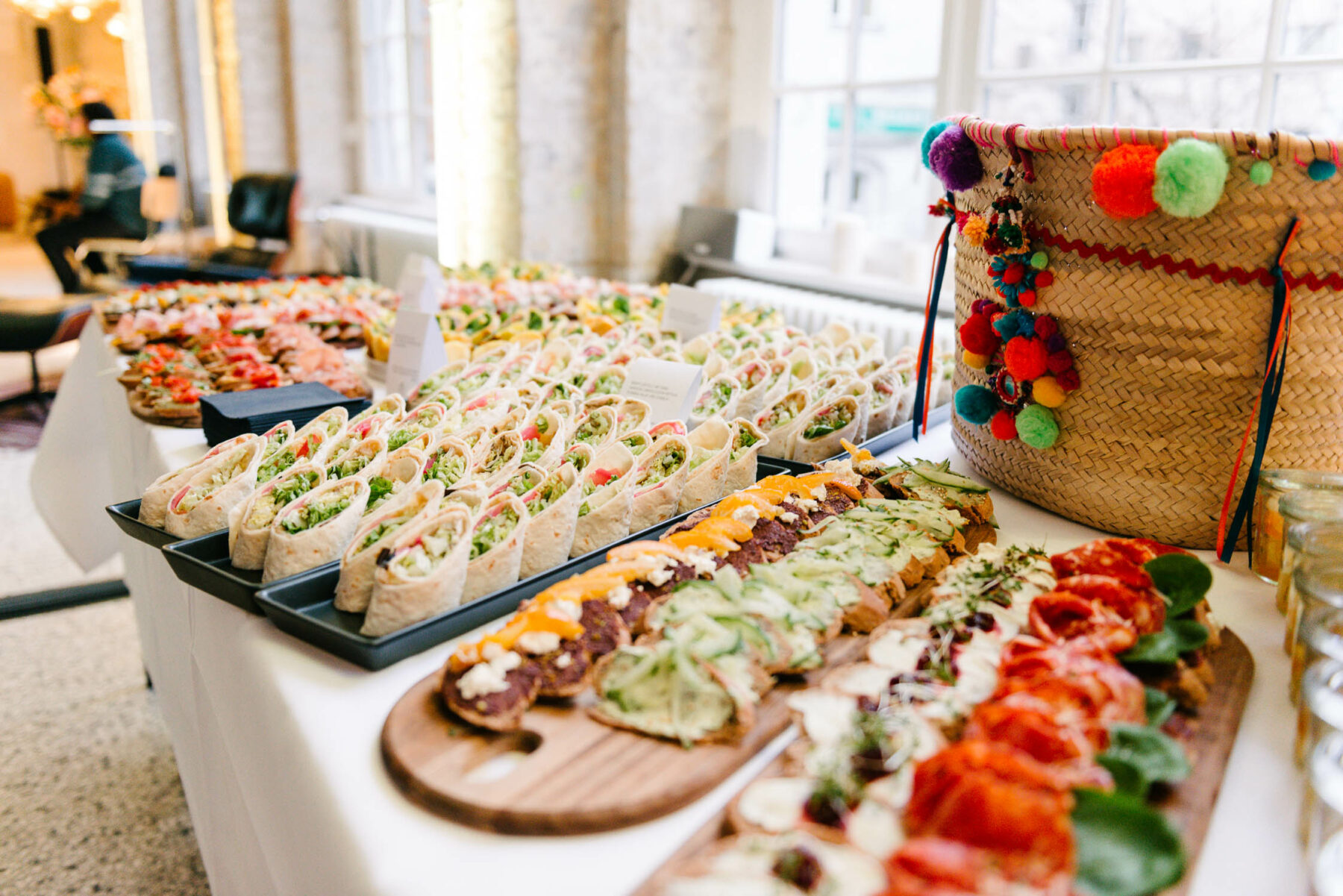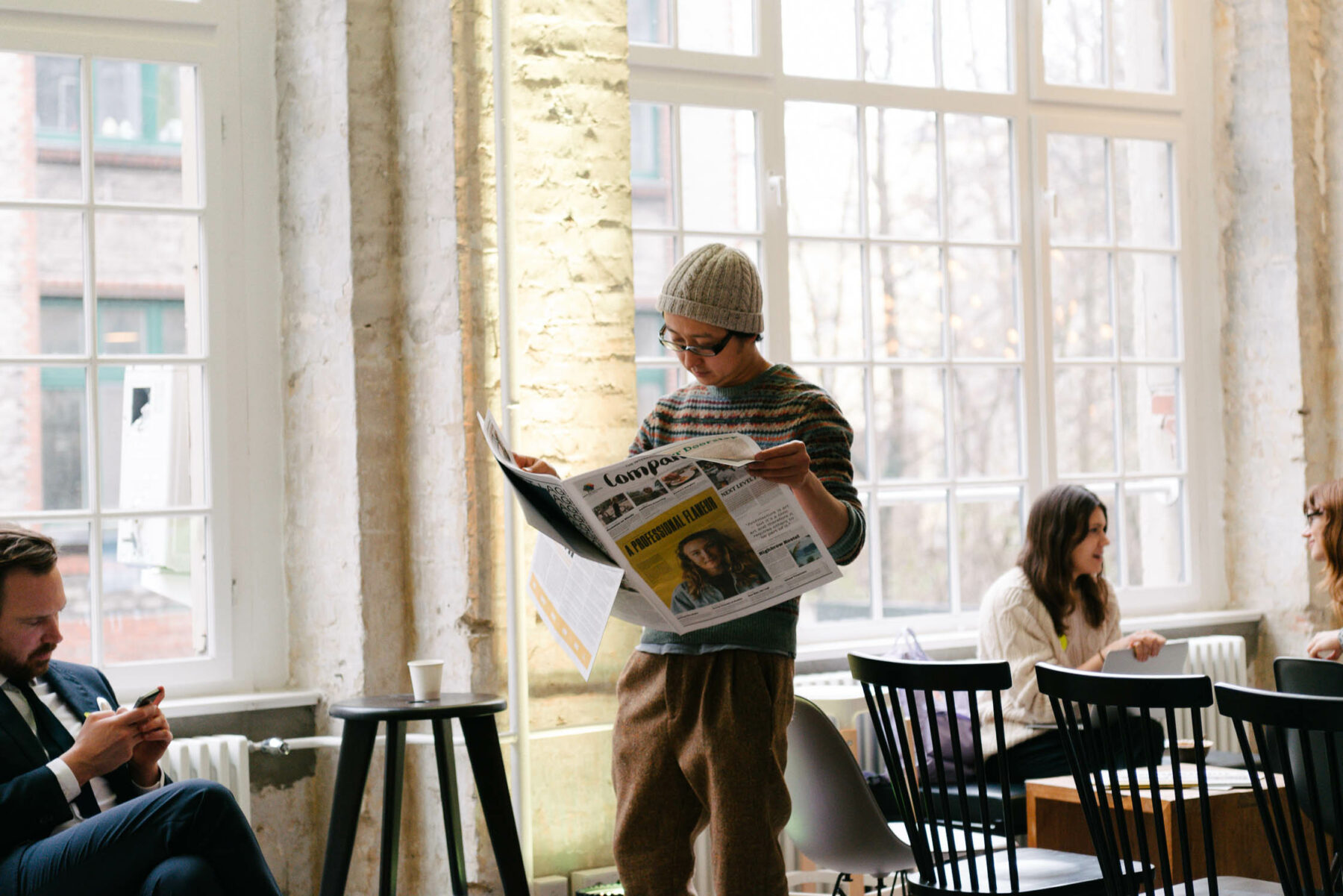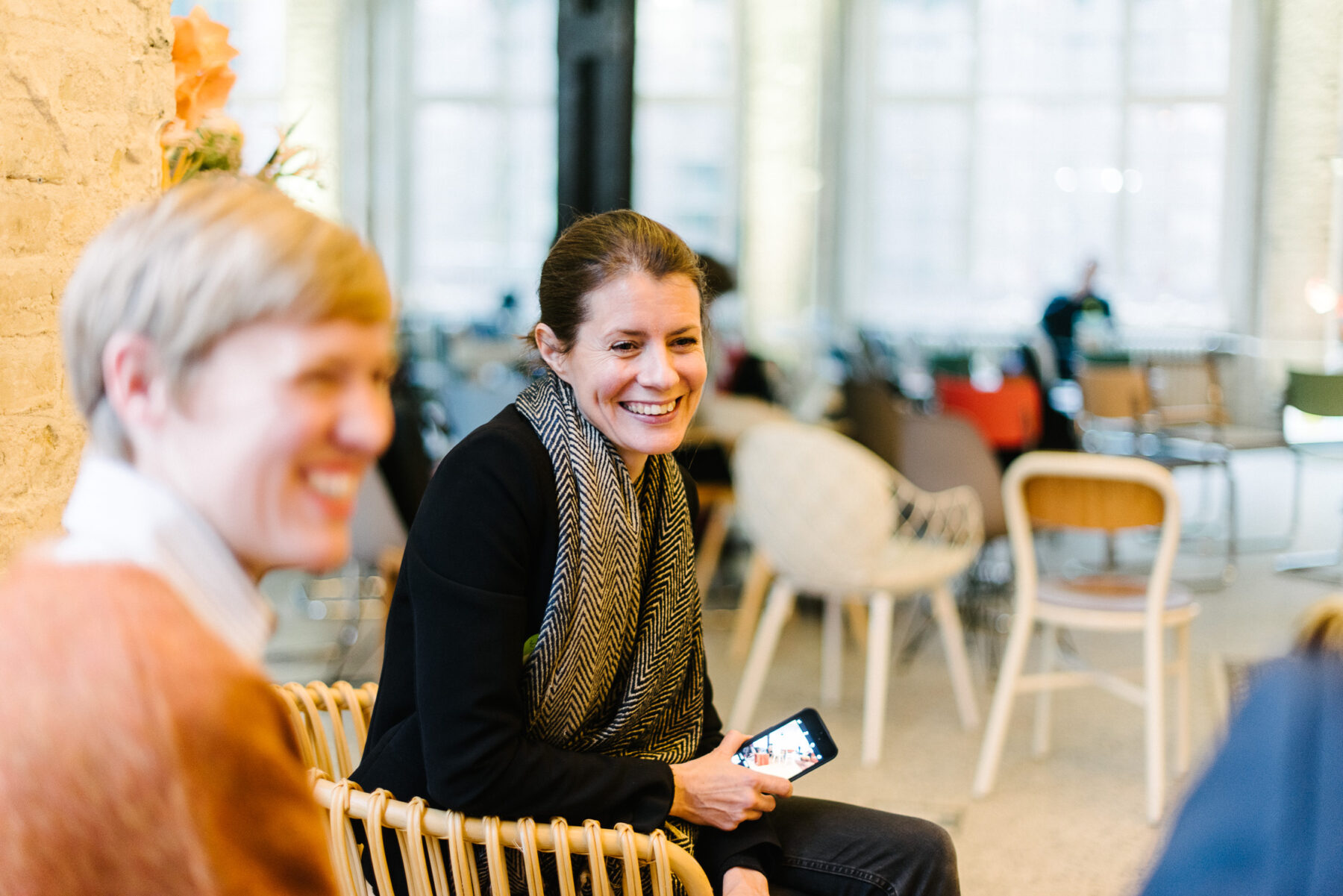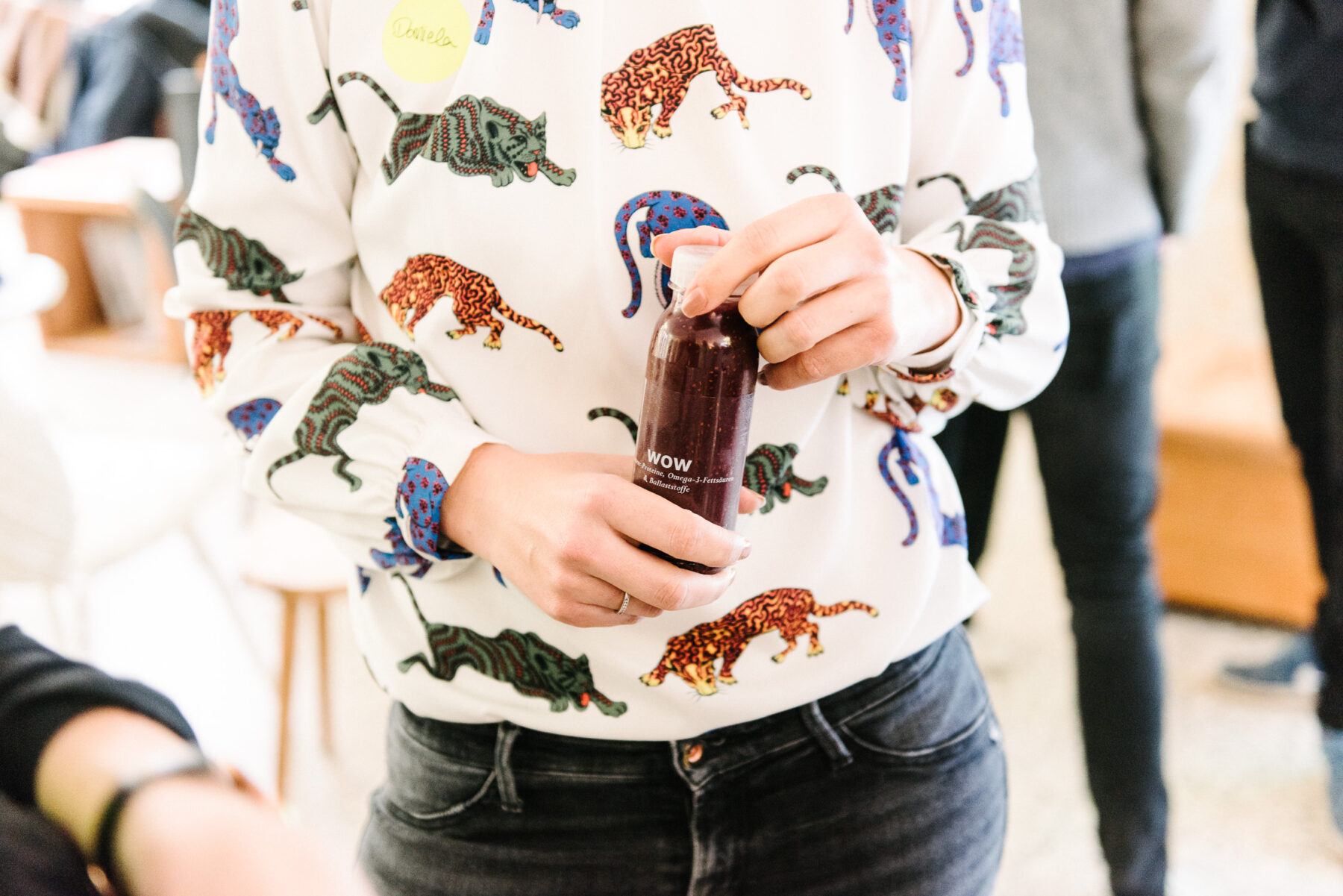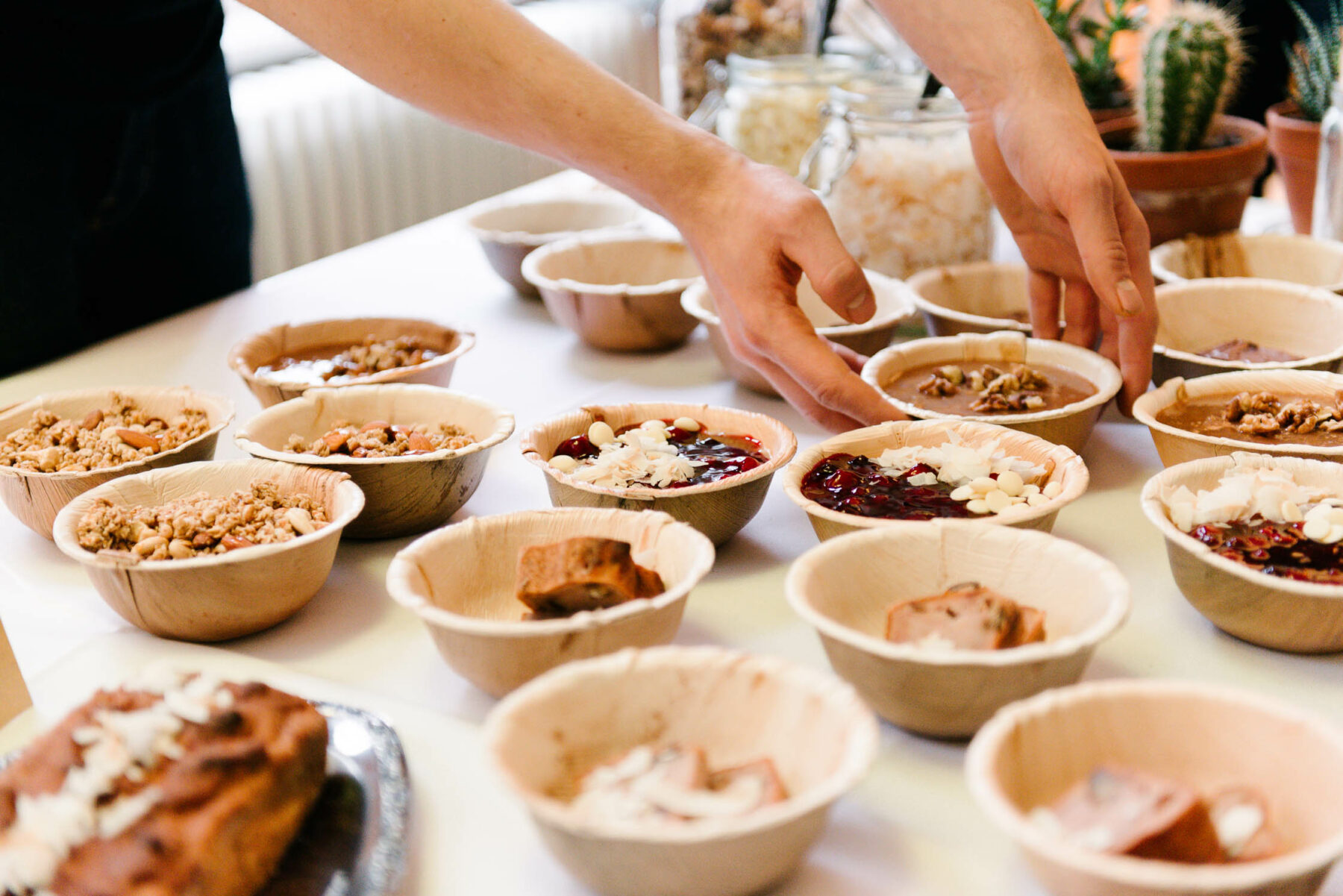The Sooner Now, Freunde von Freunden’s inaugural ‘creative conference’, was billed as a forward-looking discussion on ‘ideas for a life in the city.’ Visiting The Sooner Now’s website before the event, as I did when asked to moderate the event, two sentences in the description stood out beyond all others.
These two sentences would come to define the day as it unfolded. They nestled in both the fore and backgrounds of every talk and dialogue, taken in myriad different directions by a rapt audience playing a far from passive role in proceedings. A provocative statement: “The future is closer than ever before,” and a yearning question: “What does the future look like to you?”
So often an assembly of like-minded people can descend into a fingers-in-the-ears avoidance of certain issues and how they affect those beyond the artfully mismatched seating and exposed brickwork of the Friends Space. The Sooner Now was striking in the way that all involved seemed eager to acknowledge the increasing, often alarming disconnect between those shaping the discourse of the future and the many more who actually have to live in it. Put another way: the future may look a certain way to you/me/us from the second floor of a meticulously re(de)-constructed event space but it probably looks very different from street level.
The Sooner Now was made possible by our longtime partner, MINI. FvF and MINI share a forward-thinking mentality—always keeping an eye on what’s to come. Together we’re exploring the possibilities of future urban living by tapping the great minds and ideas swimming around the FvF network.
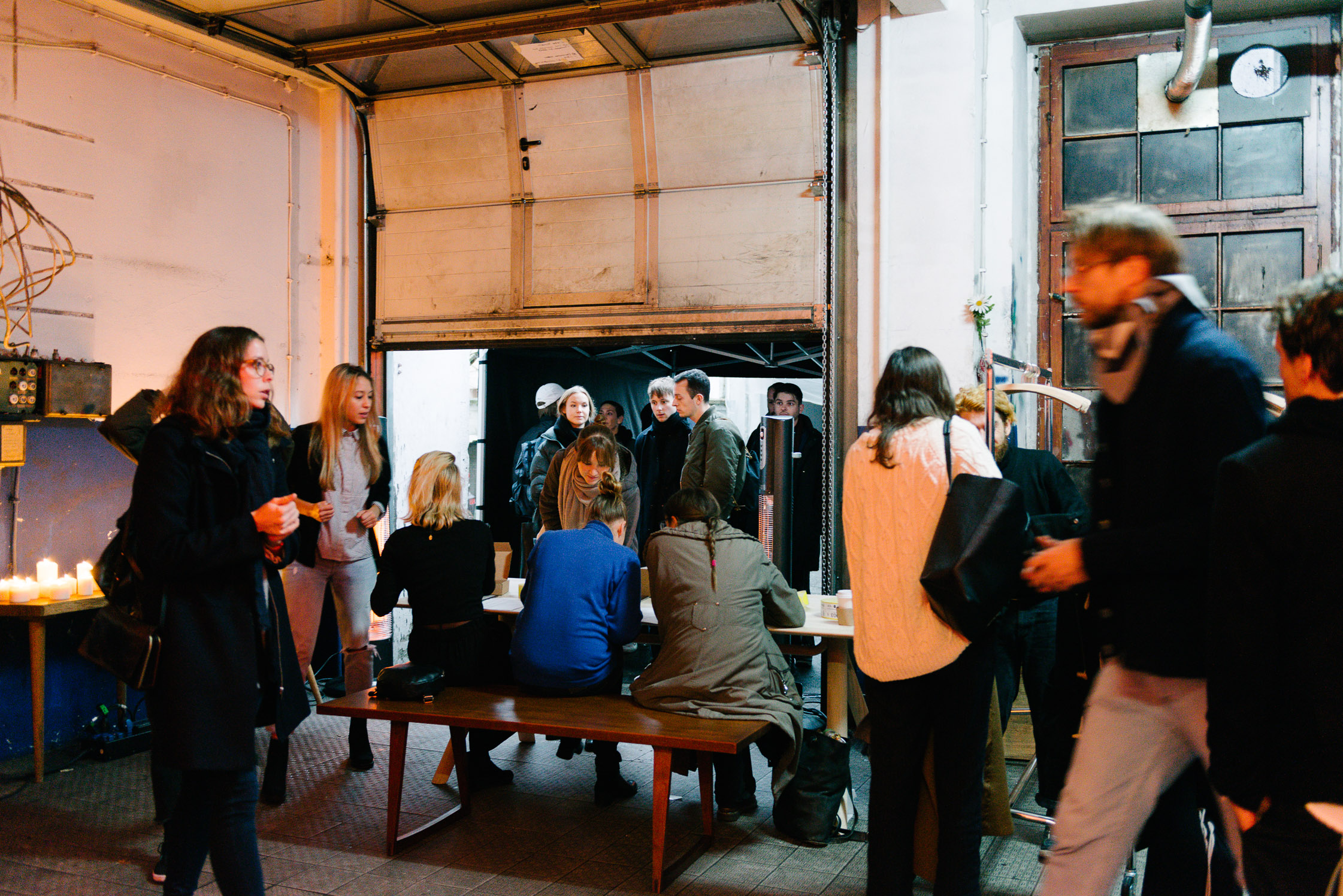
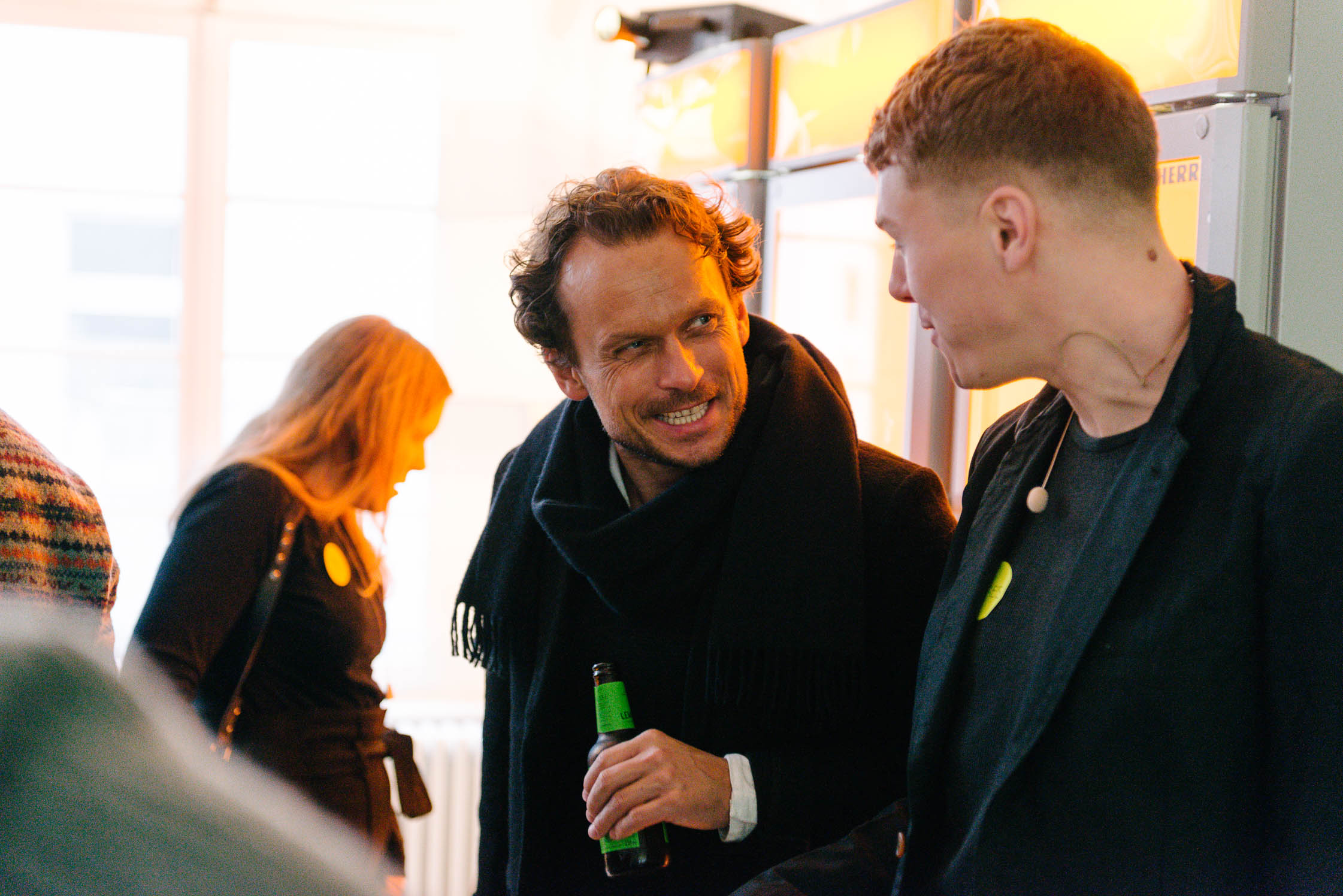
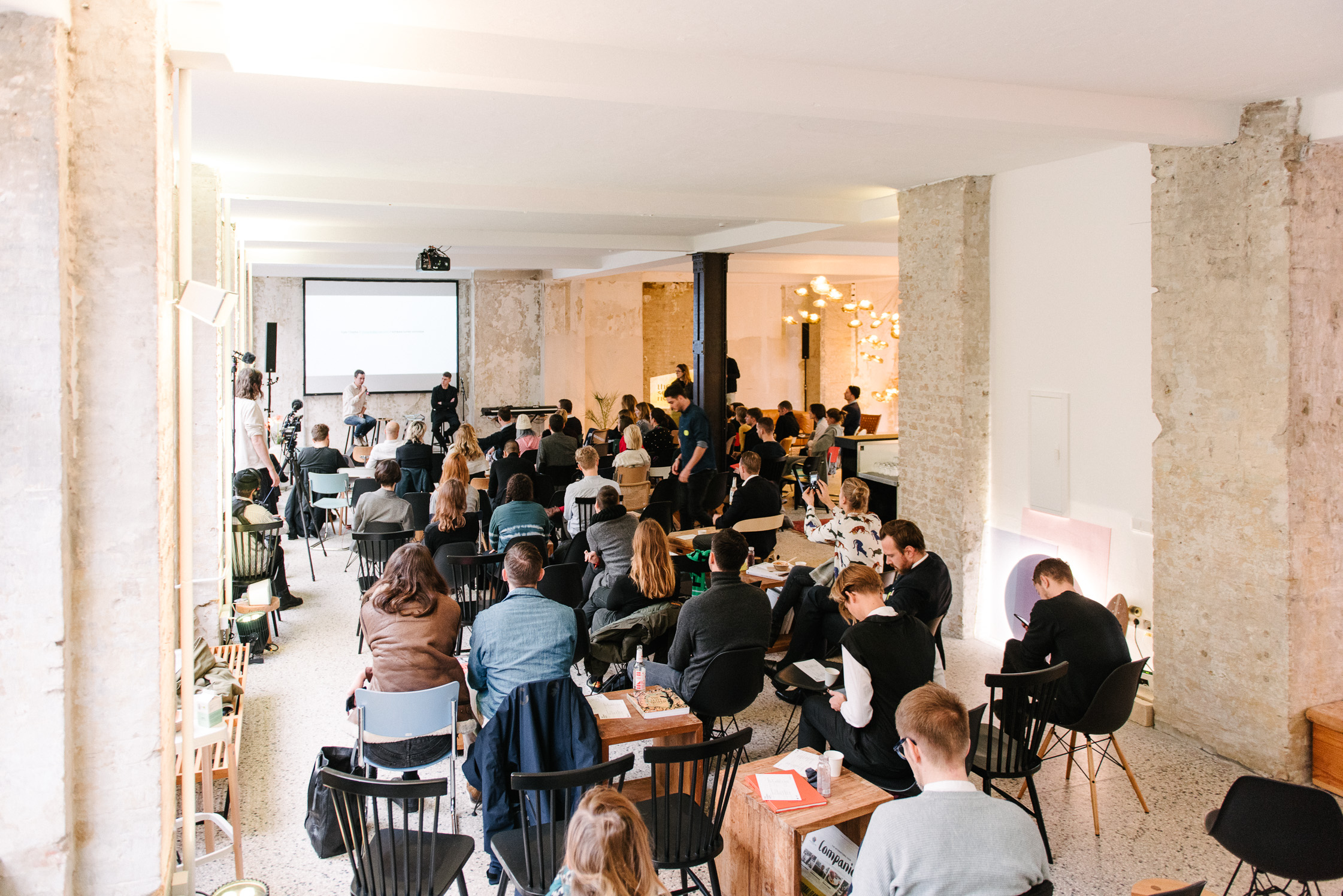
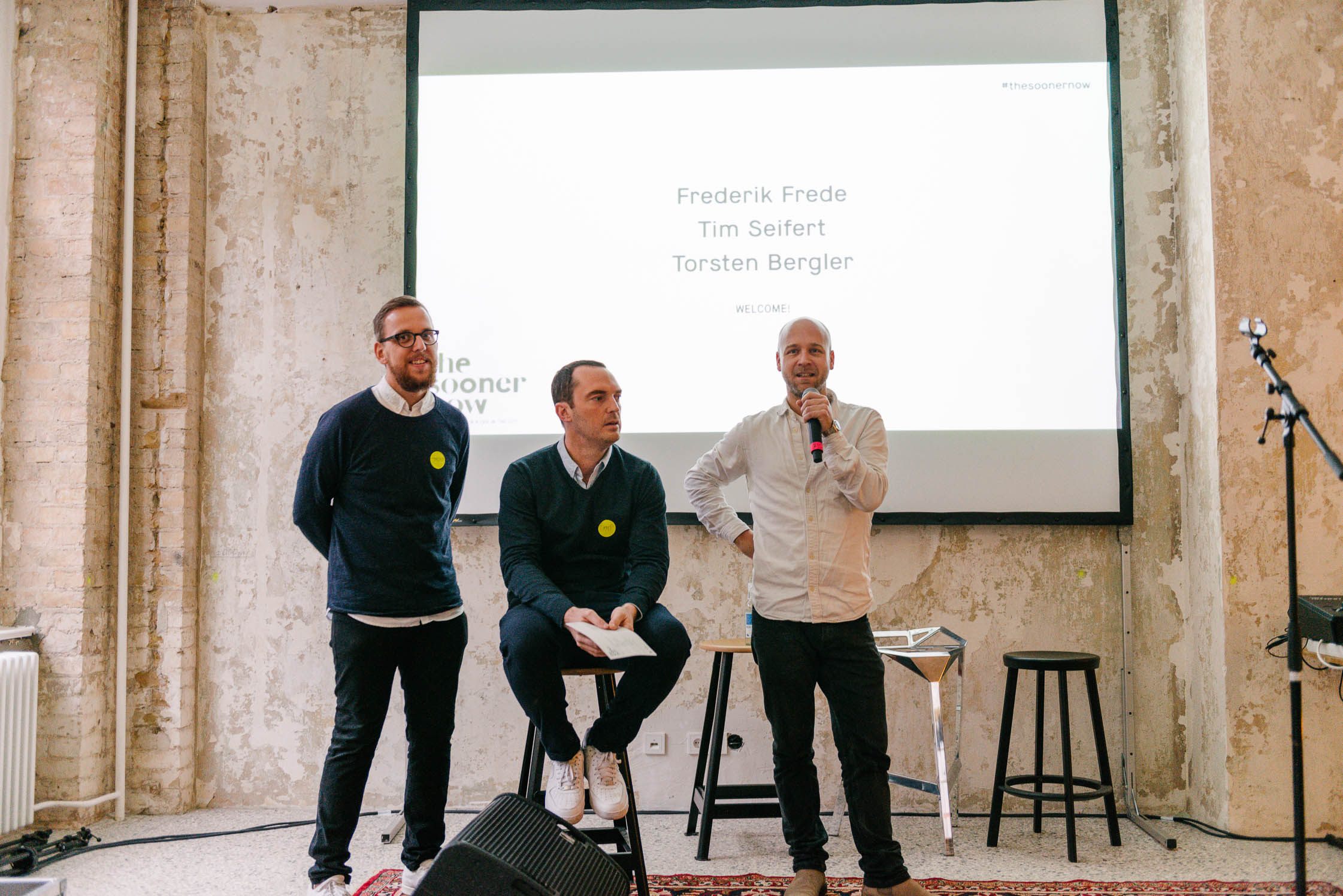
“We started Freunde von Freunden seven years ago now, and with The Sooner Now we wanted to challenge this aesthetic—this world we all love but have become perhaps too comfortable with,” said Frederik Frede, one of the three FvF founders in his opening remarks. As you might expect, the spectre of a grueling 2016 loomed over much of the day—when Oke Hauser, Creative Head of MINI Living asserted that, “cities aren’t just space, but also time,” it felt particularly weighty. It was a credit to Freunde von Freunden, MINI Living and every person involved just how ready they were to explore the difficult questions. Those questions that threaten to burst the vacuum-like bubble we have all become so used to. We may not have solved the world’s woes by sundown, but at the very least it was an inspiring experience: one that invigorated debate and inspired new ways of thinking about our roles in the fast-encroaching future.
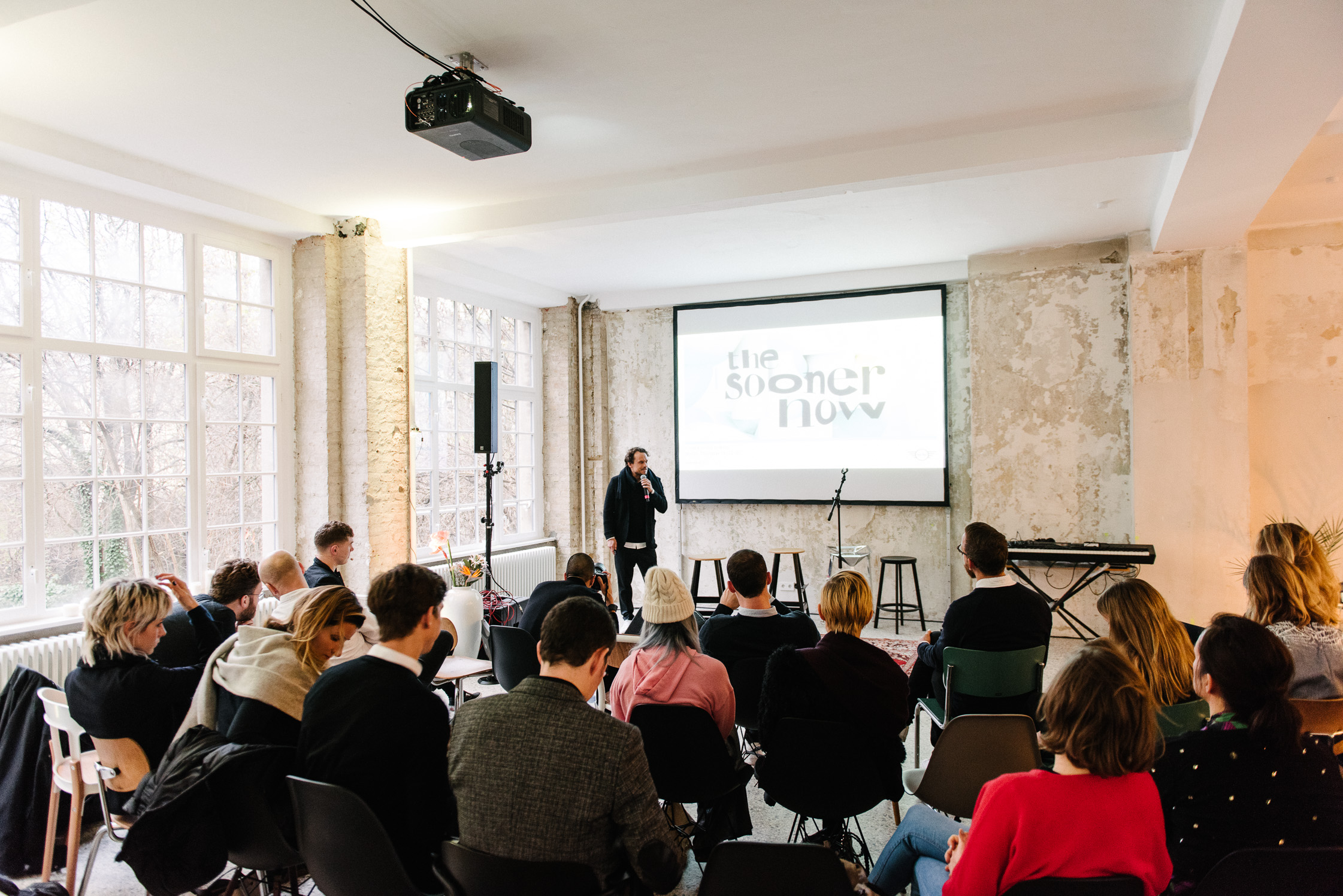
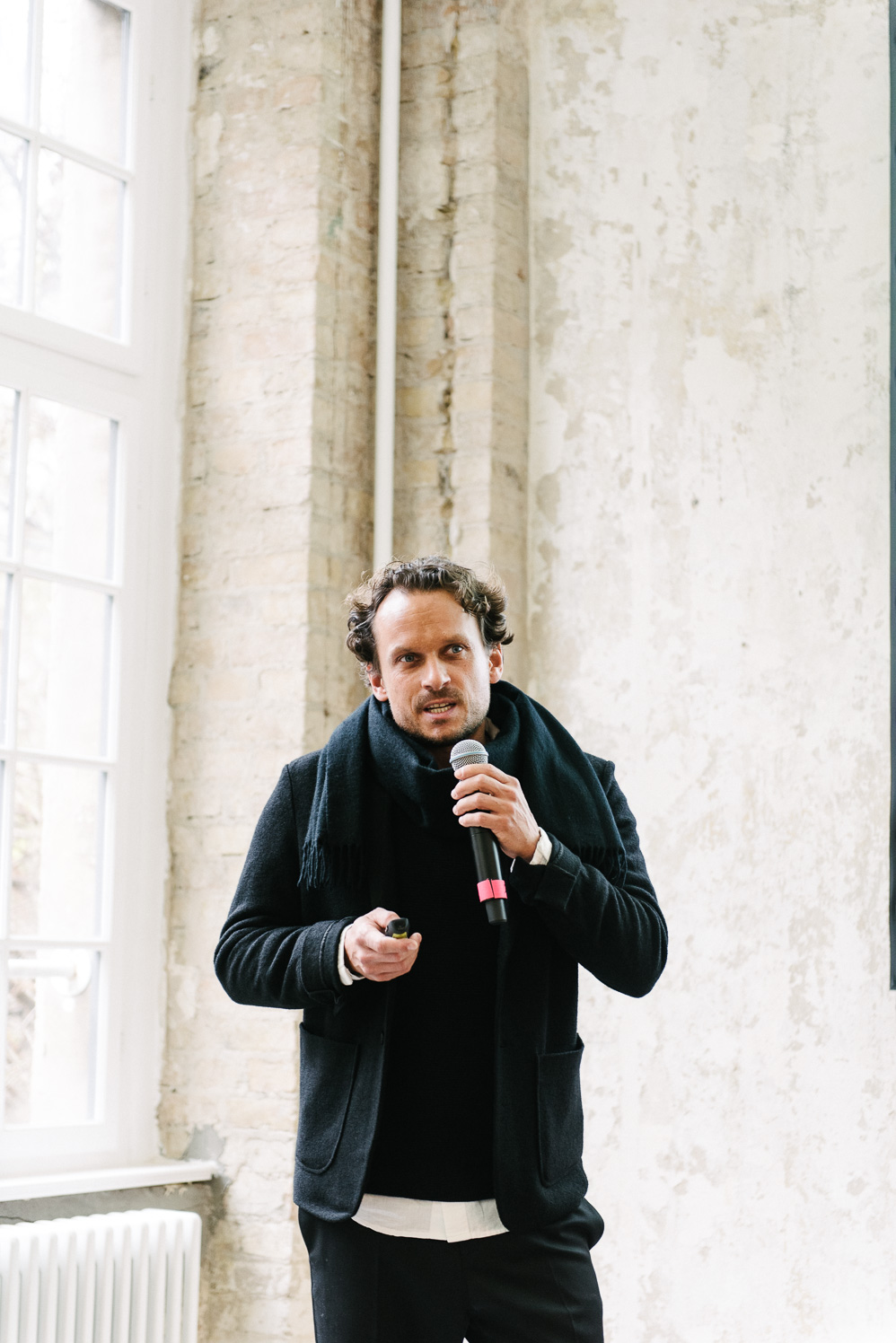
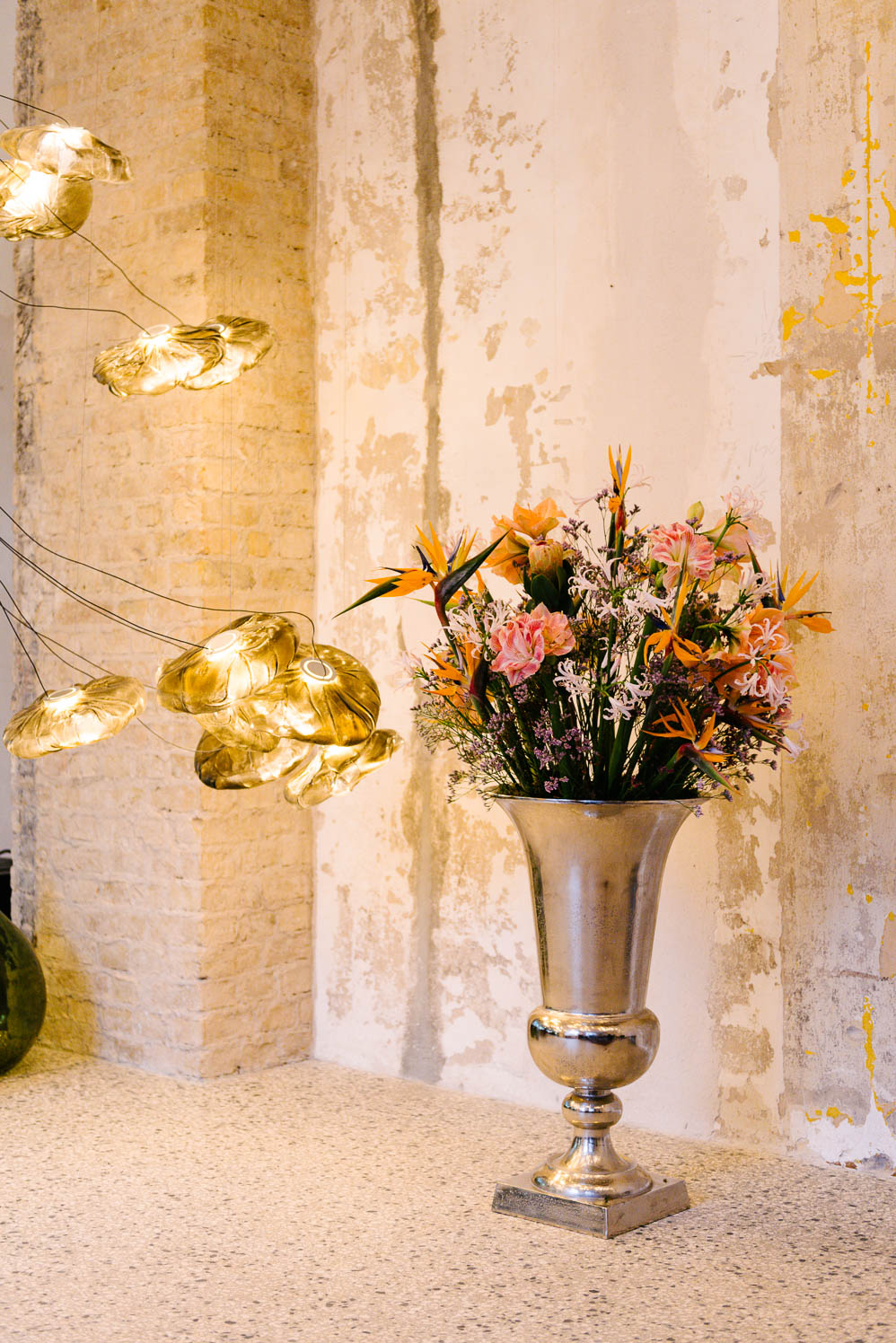
Setting the tone for this was the first keynote speaker, Brooklyn-based writer Kyle Chayka. In recent months he has become the de facto authority on ‘airspace’— a phrase he coined to define a certain type of curiously generic and all-pervasive cultural aesthetic that anyone reading this is no doubt familiar with. Airspace exists in everything from the Airbnb apartments we are most drawn to, to the coffeeshops in which we work, socialize and devour copious amounts of smashed avocado on sourdough toast. Think industrial-esque walls, unvarnished wood and mismatched furniture; brusquely-fashioned menus filled with what would be obliquely bewildering ingredients from around the world were we not so utterly familiar with them by this moment in time. Each of these airspace indicators is plucked from the coffee shop I’m currently writing this piece from. I’m in London, Kyle is from Brooklyn and we convened in Berlin—the coffee shop could, and indeed does, exist in each of those places, countless times over. Kyle’s talk, and the ensuing discussion, wrangled with how to square an instinctive affection for these aesthetics with an acknowledgement of just how alienating they make creative spaces for those who can’t or don’t want to relate to such signifiers.
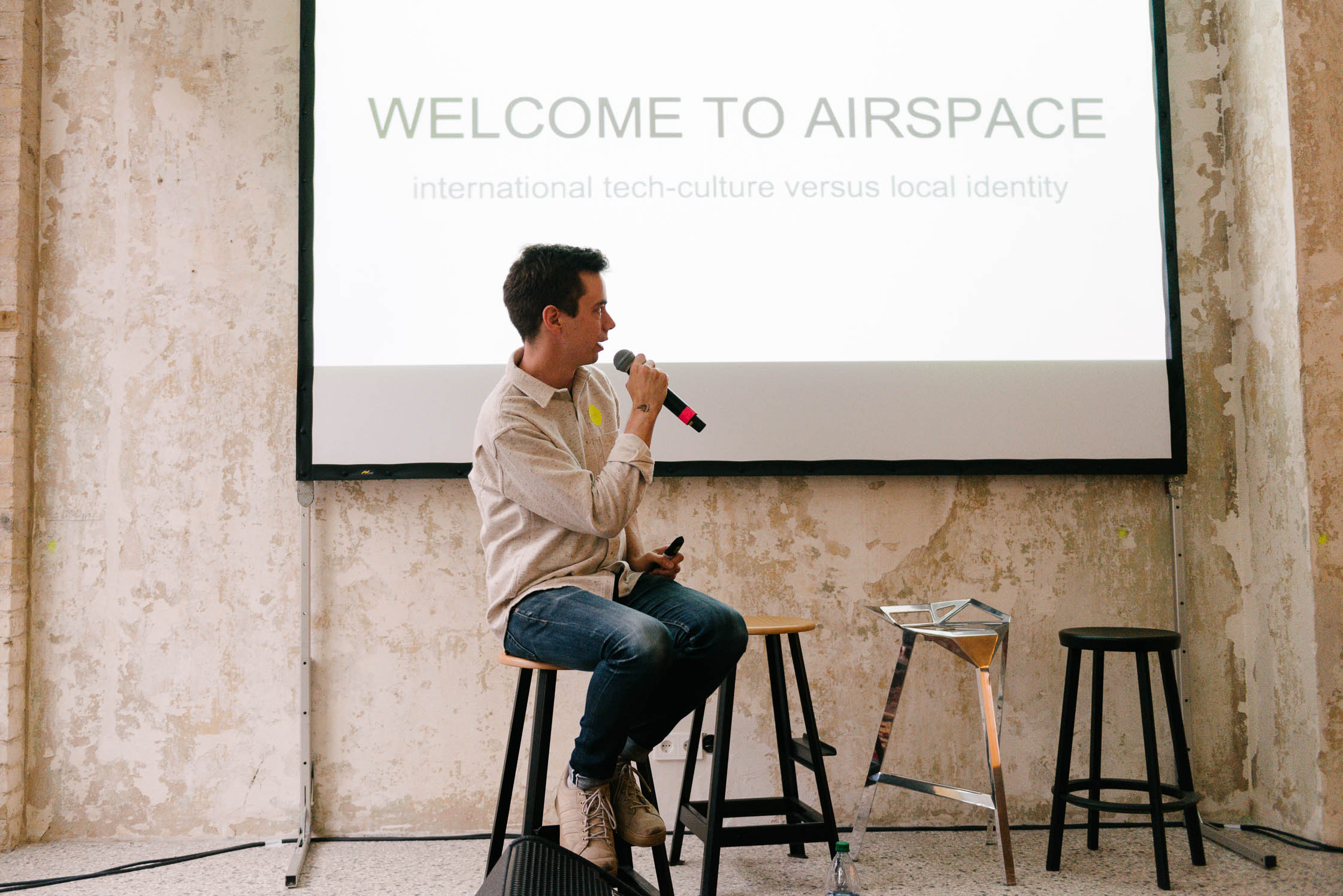
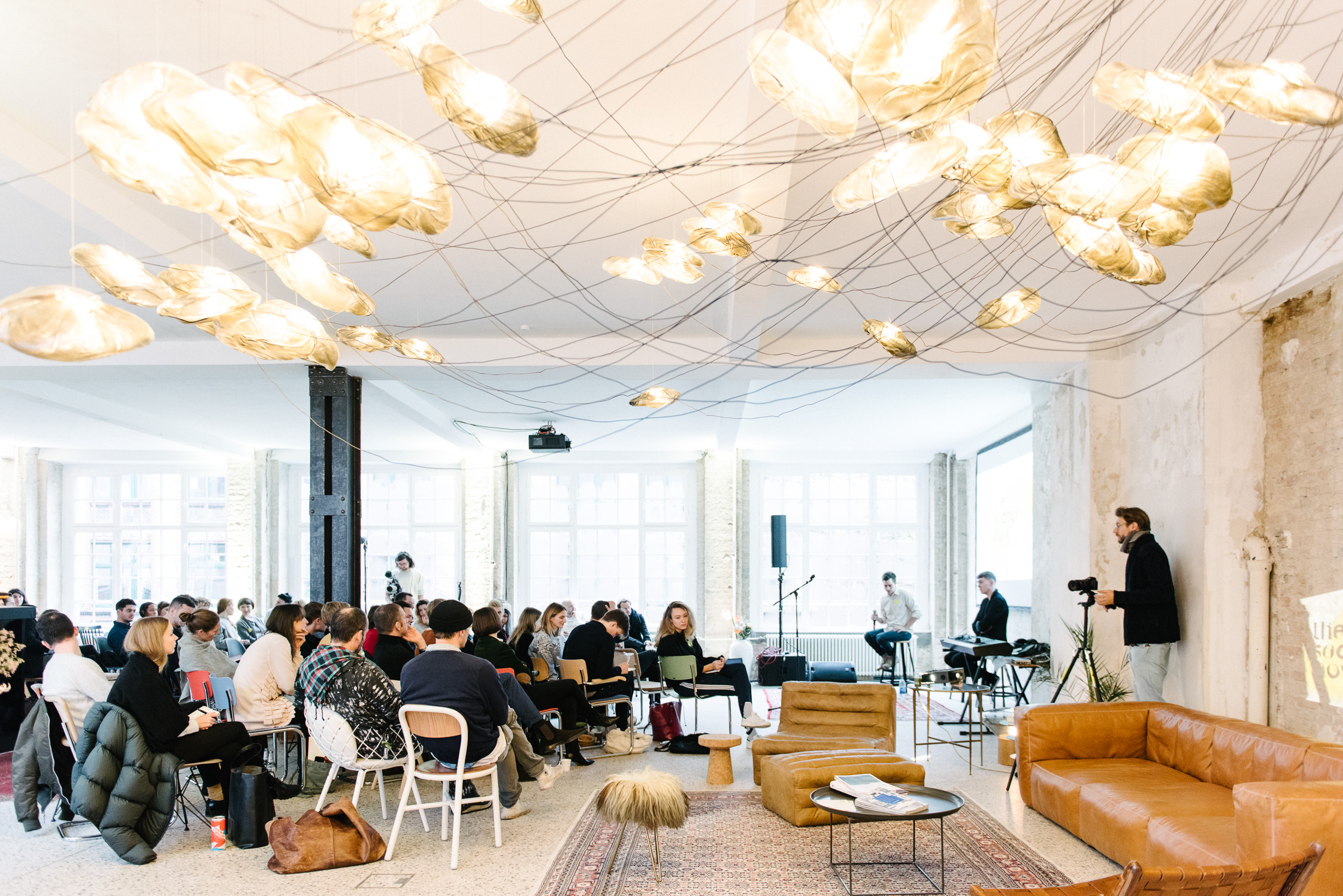
“Our decisions and priorities now more than ever will shape the cultural geography of the rest of the world.”
If it was perhaps a little early in the day for any (chicly exposed) concrete ‘answers’ to arise, the subject did at least provide a springboard for subsequent speakers to set their own experiences and ideas against. Ultimately all talk of aesthetics transformed into something much more deep-seated. “It’s up to city residents to decide how to deal with the consequences [of technological change],” said Kyle in an essay for Freunde von Freunden to kick off the topic, prior to the event. “We must acknowledge that our decisions and priorities now more than ever will shape the cultural geography of the rest of the world, and proceed with care and empathy.”
‘Care and empathy’ were key talking points throughout the presentations. They are qualities that have a habit of getting lost in the abstract meanderings of lip-service, only worthwhile when manifested in tangible action. It was refreshing then to see the latter being exhibited by each new speaker to take the stage.
Ricarda Messner, founder of Flaneur magazine, immerses readers in the world of a single street in a single city with each new issue. I do not use the word ‘world’ by accident: it is easy to forget as we navigate a shrinking planet of rampant globalization just how much life exists on a local level. By illuminating hyperlocal everyday realities through in-depth and novel features and interviews, her publication gives a global voice to those shopkeepers, residents and general others who would otherwise exist almost entirely separately to the so-called creative class.
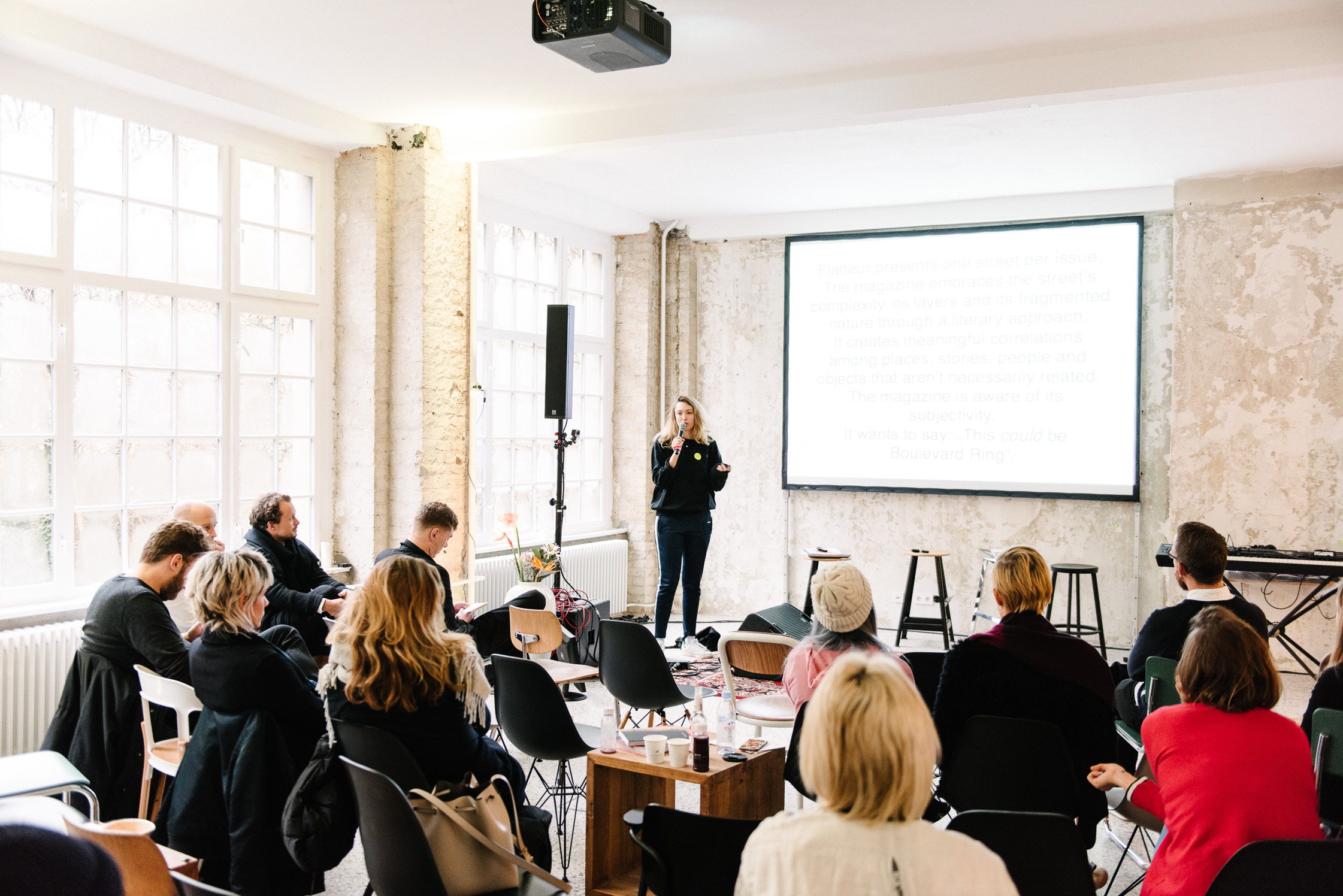
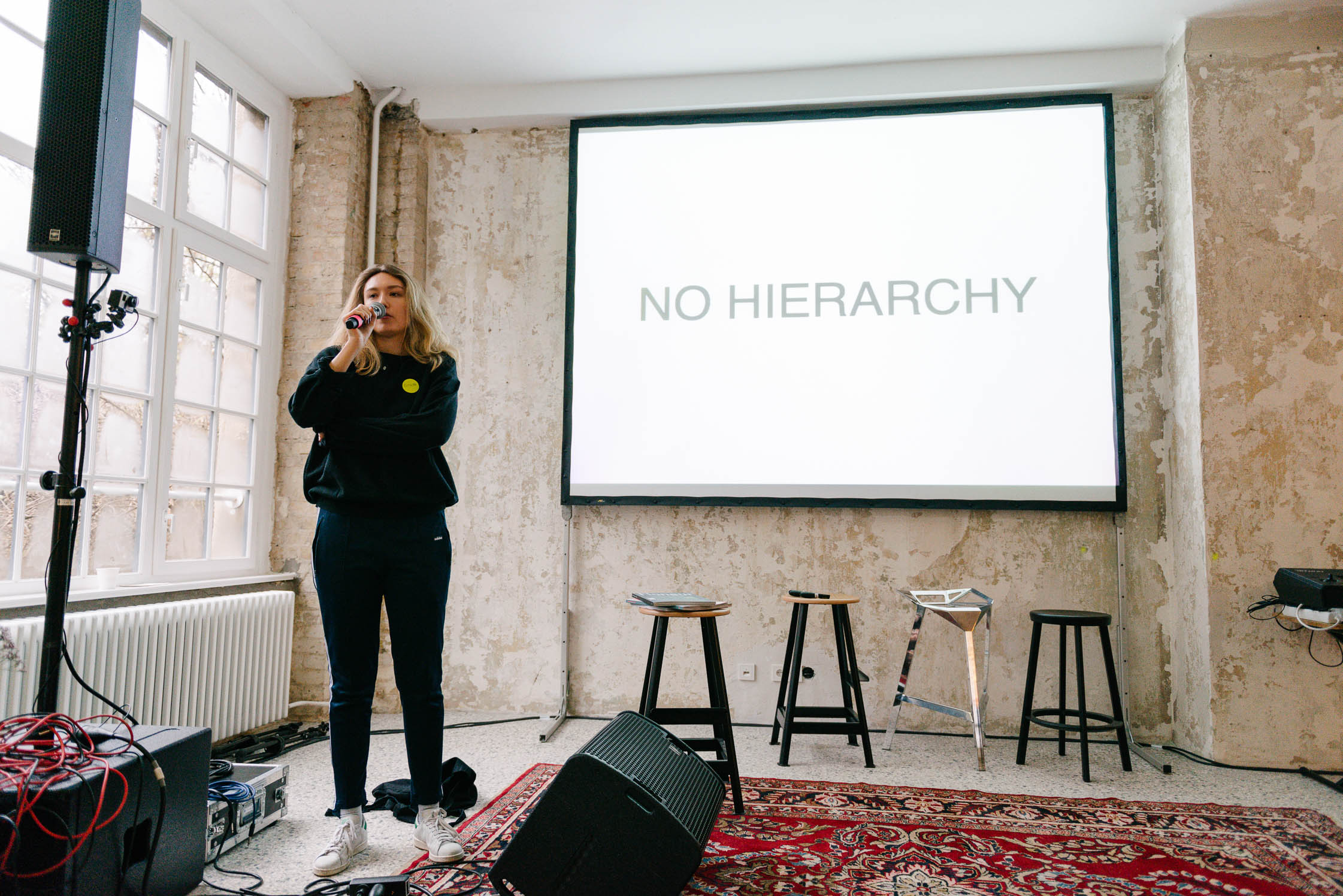
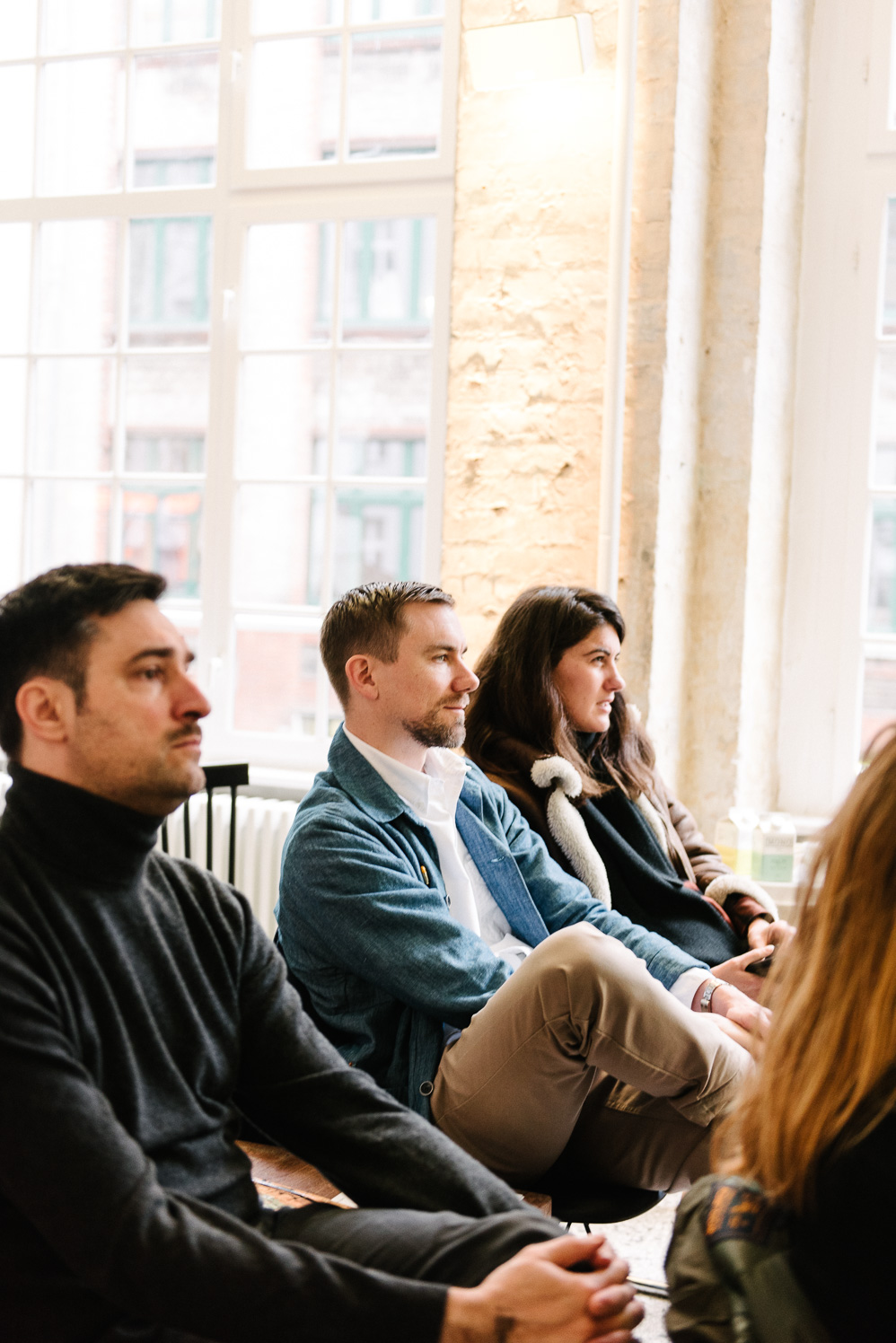
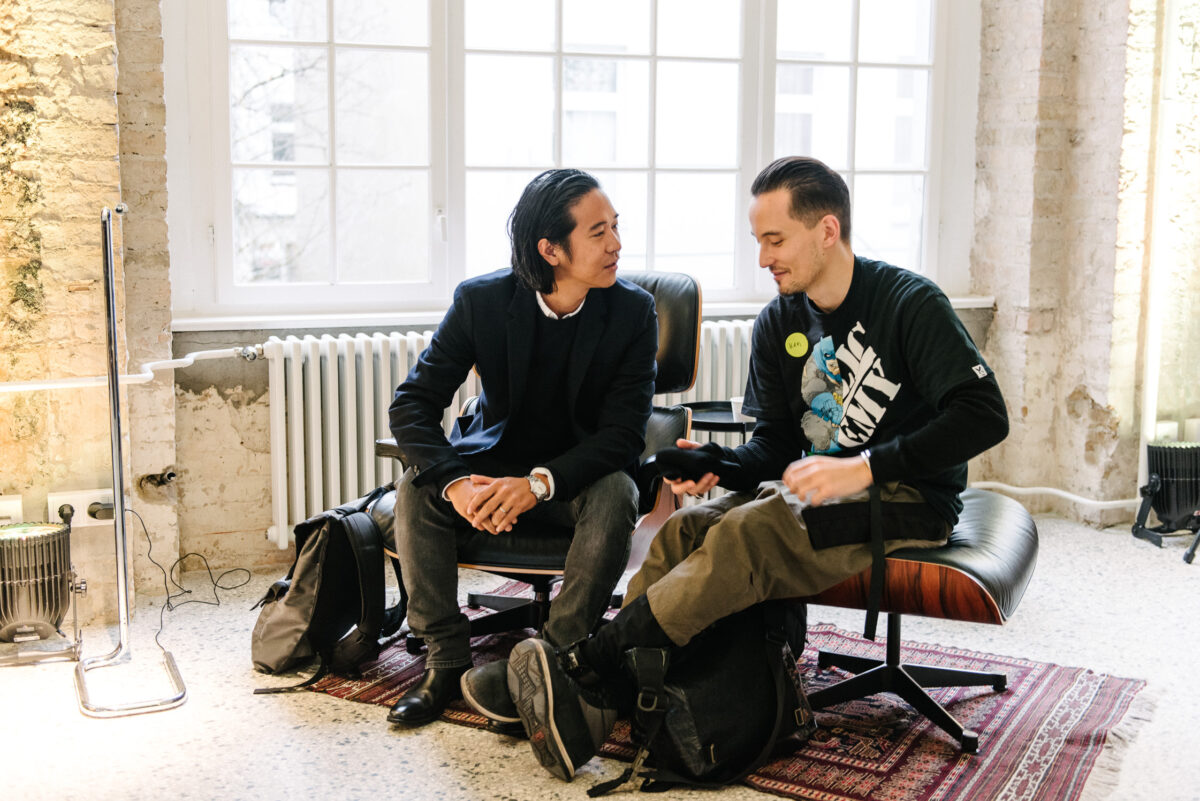
Gloria Spindel was next up, representing the Peng! collective. Peng! are a group of artists and activists who execute media-savvy, often searingly humorous stunts to thrust a whole range of political and social issues into the public conscious. Case in point: the building of a Twitter bot that automatically subscribed posters of discriminatory words to a self-help programme. She spoke forthrightly, and was perhaps the first speaker to truly take us outside of our comfort zone.
It is increasingly easy to live moment to moment in an always-on world, bouncing along carefree across the surfaces of slick algorithms and effortless apps. Gloria scratched beneath that surface, armed with the dry wit her collective’s stunts have become known for, in her talk on ‘the attack of the smart toasters and other fears of a connected city.’ Whereas she softened her predictions for Berlin with frequent maybe-I’m-just-being-paranoid-buts I found it impossible not to think of her potential future in terms of my own existing present: as a Londoner living under an increasingly inwards-looking and authoritarian, Brexit-steeled government. A major British insurance company recently announced that new premiums would be dictated by our Facebook profiles; our parliament recently passed The Investigatory Powers Act into law, giving security services access to more of our personal data than has ever been seen before in a Western democracy. Rather than breaking for coffee on a pessimistic note however, Gloria channeled the optimism that all strident activists must surely possess. The mood was never downbeat, always defiant. Hopeful.
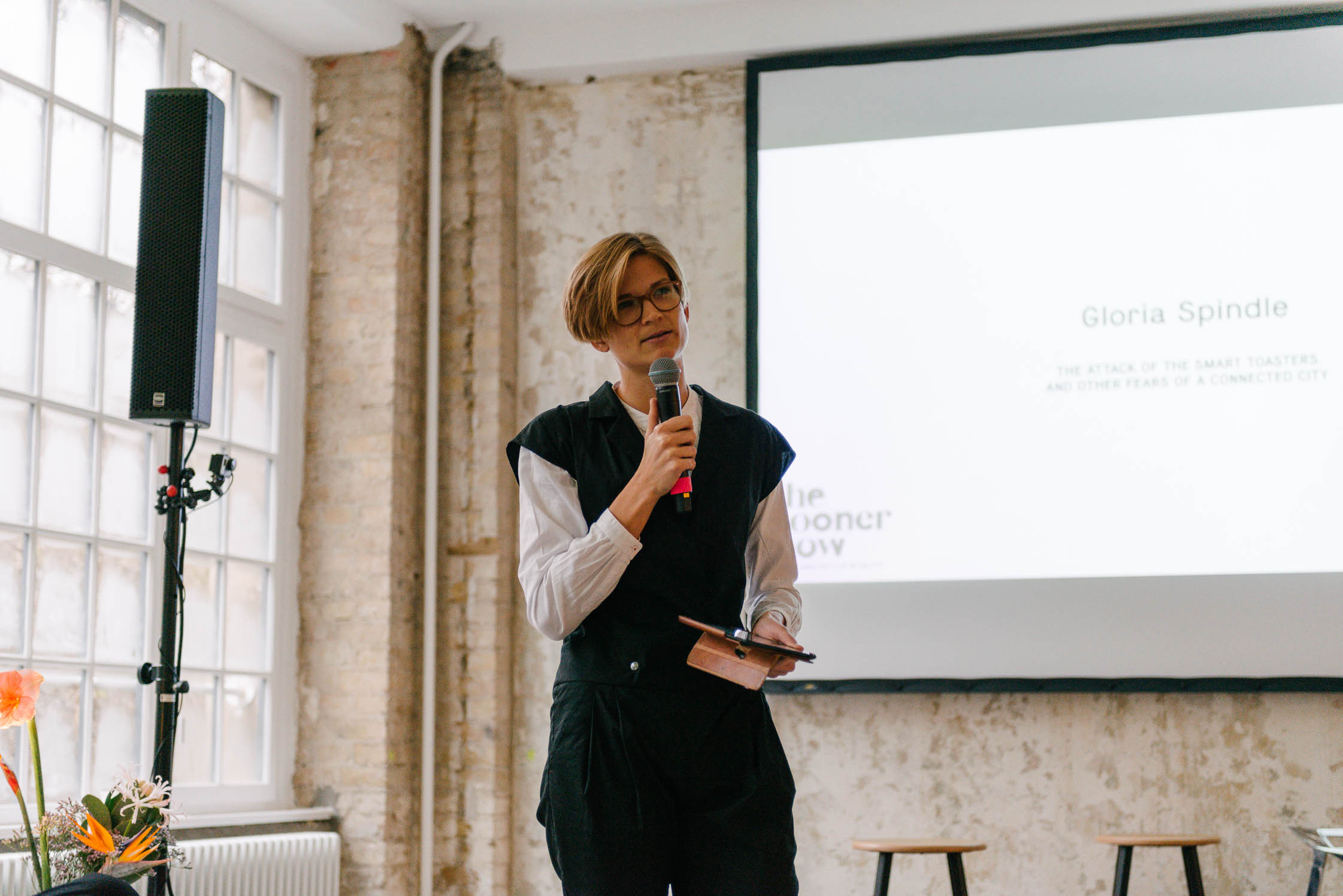
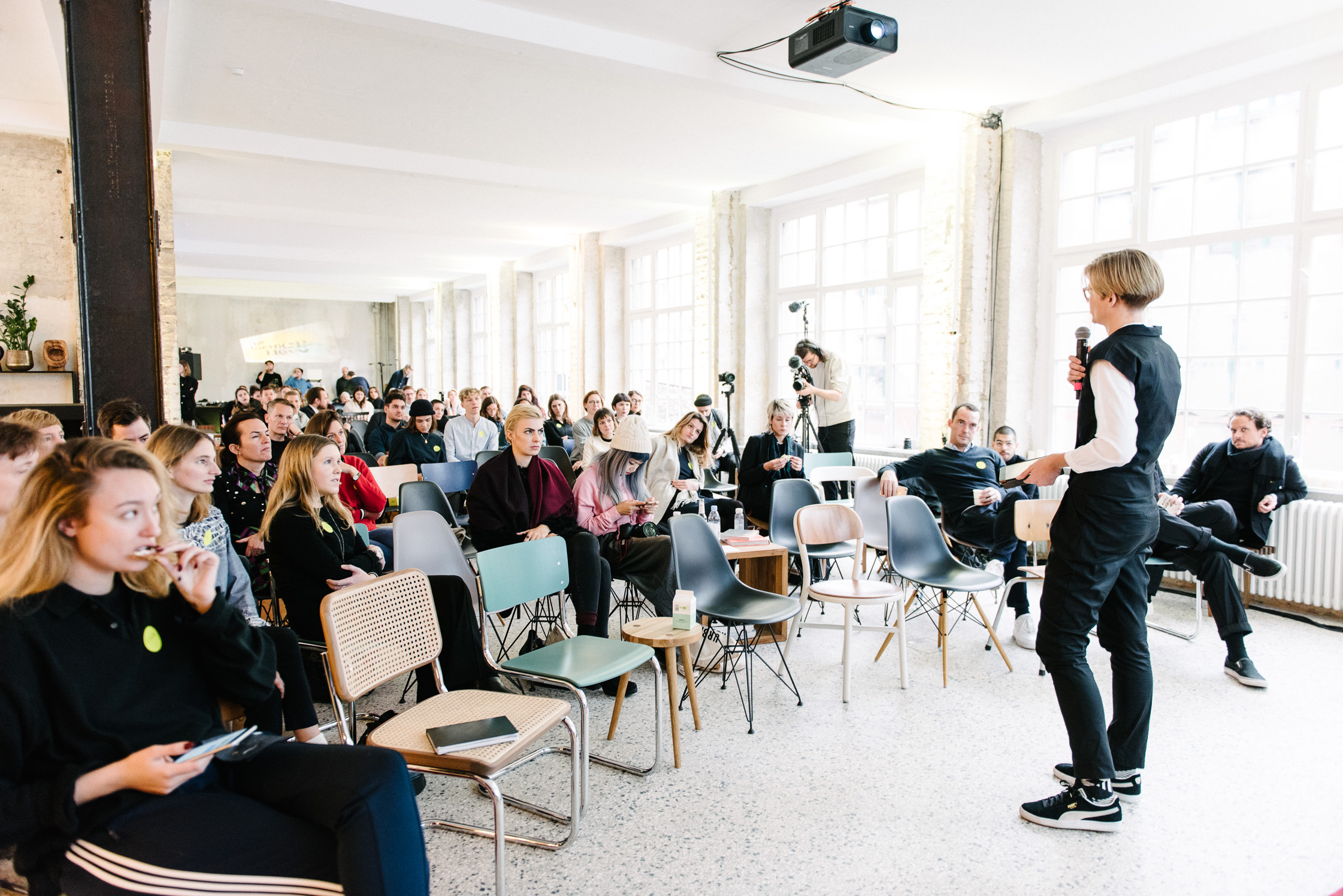
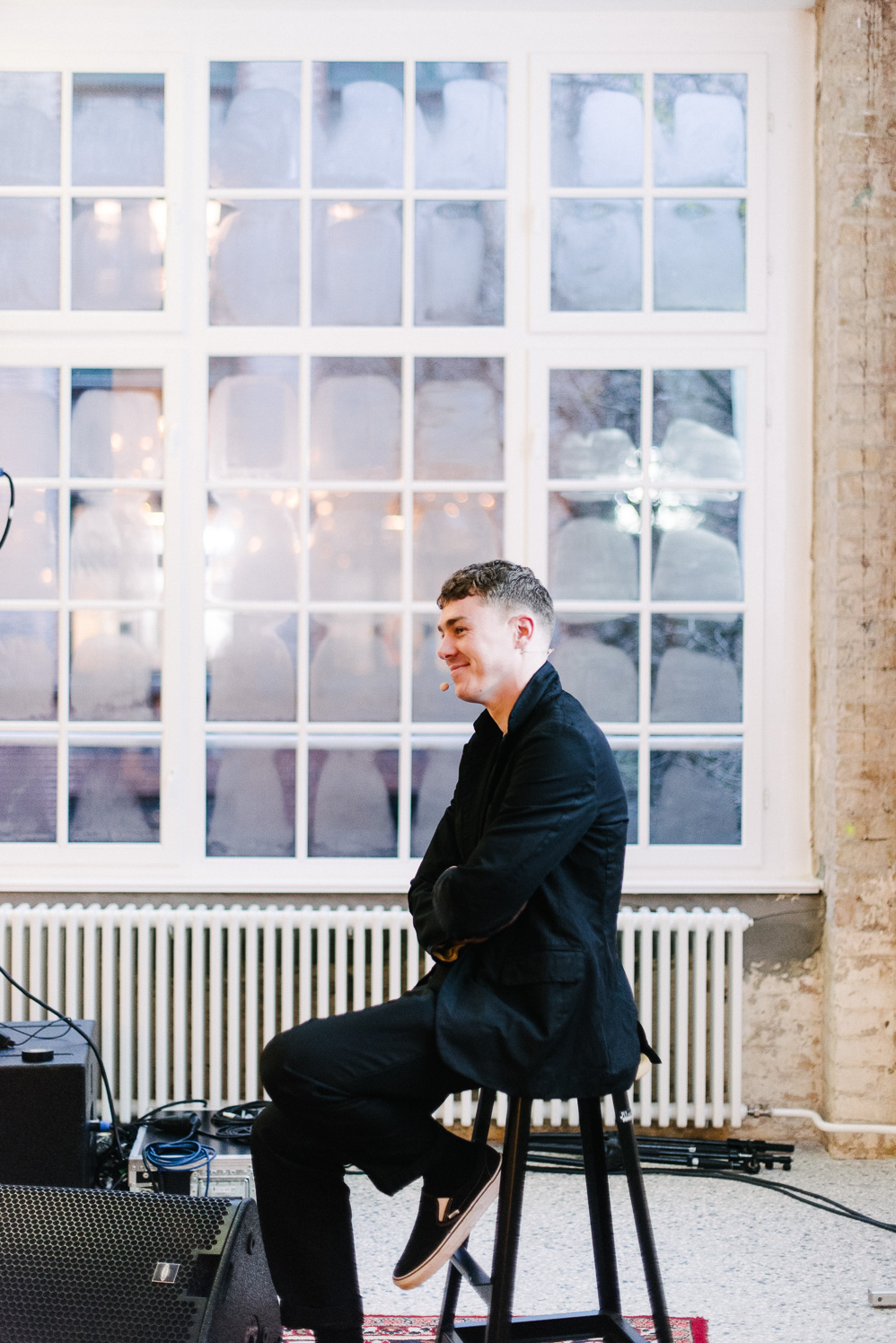
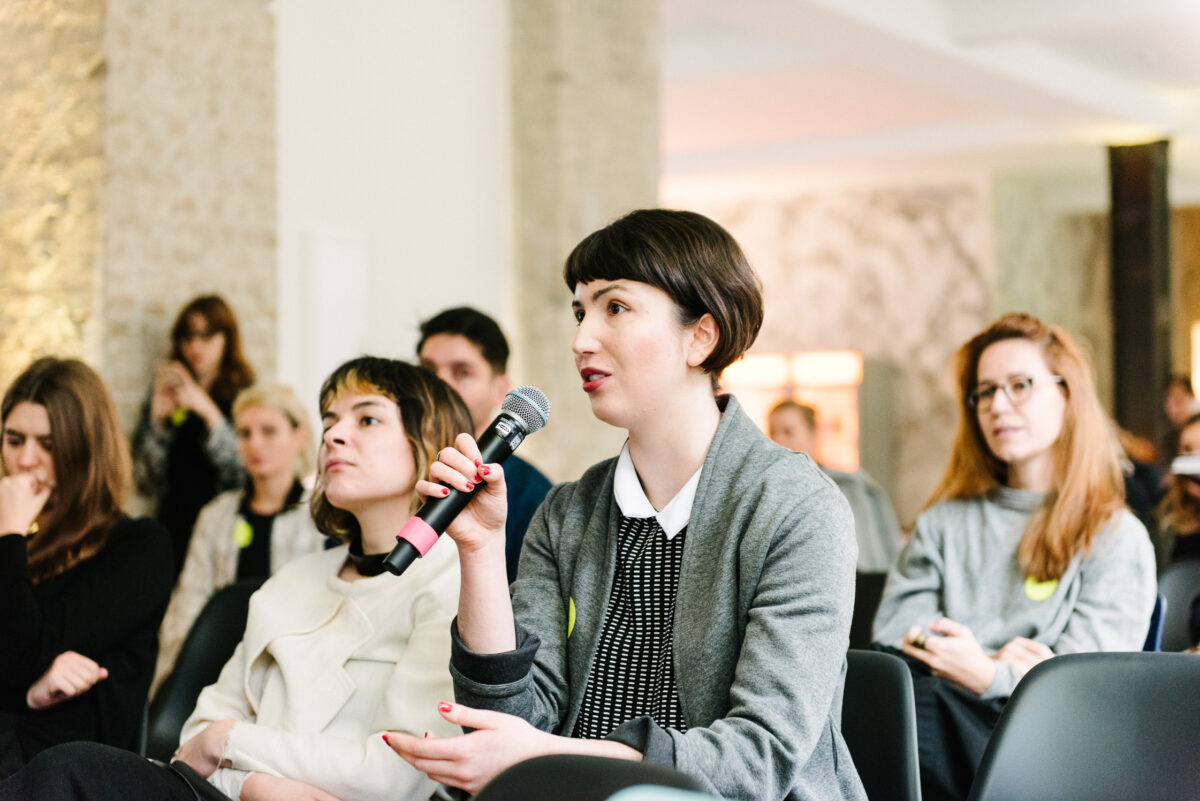
Food is often an insightful lens through which to chart the overarching progress (or lack thereof) of a culture—perhaps it’s something to do with the role it simultaneously plays in both our basest instincts for survival and our greatest desires for indulgence. Susanna Glitscher, representing Berlin Food Week, gave a talk that inspired the most extended period of debate amongst the crowd. A debate about how best to educate people on the ‘good value’ of an ethically-sourced, abundantly healthy salad was leant further frisson by an audience member rightly pointing out that regardless of its merits, any salad that costs eight euros is immediately irrelevant to the vast majority of the population who simply cannot afford such a lunch. Perhaps fittingly, this was the last talk before breaking for lunch.
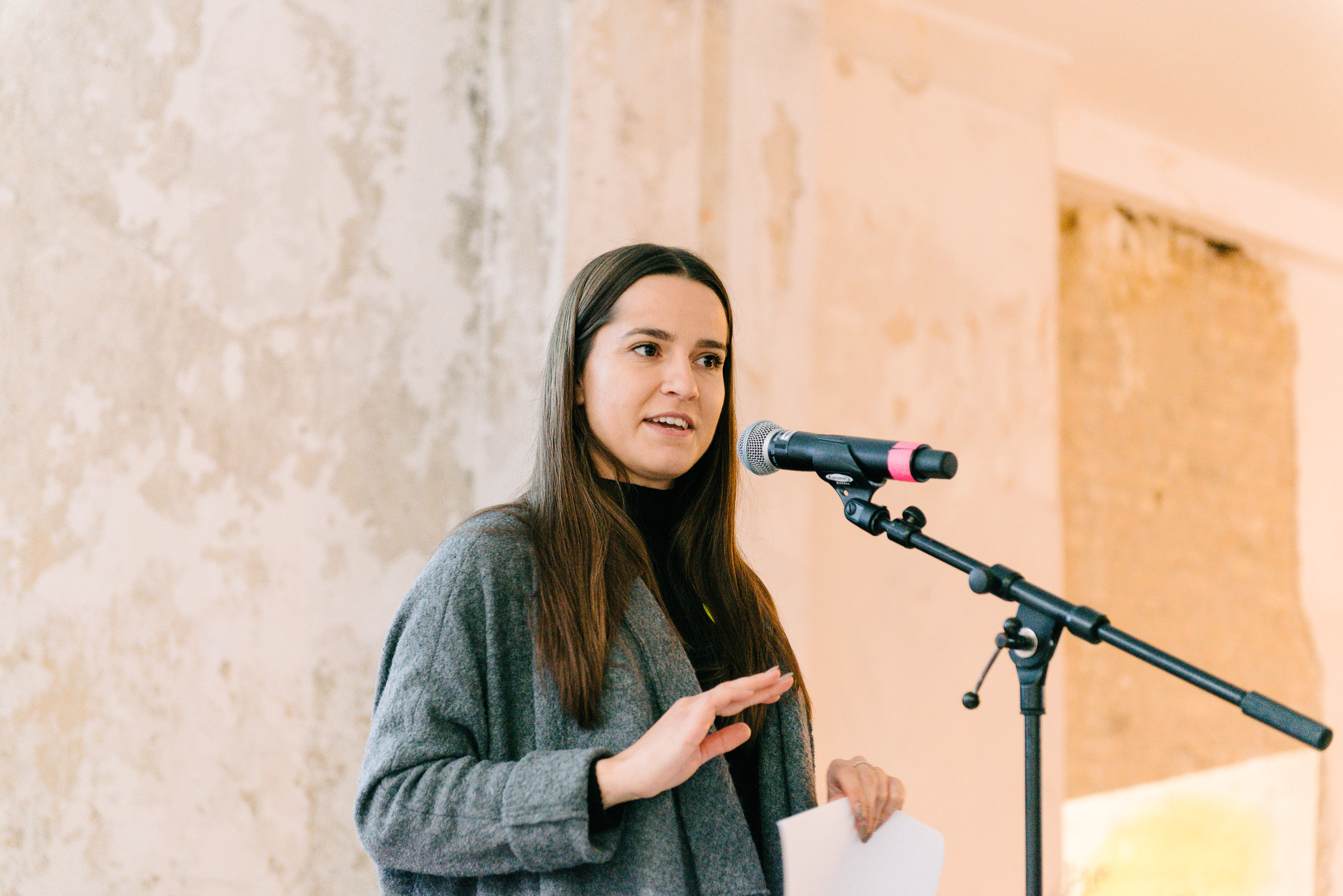
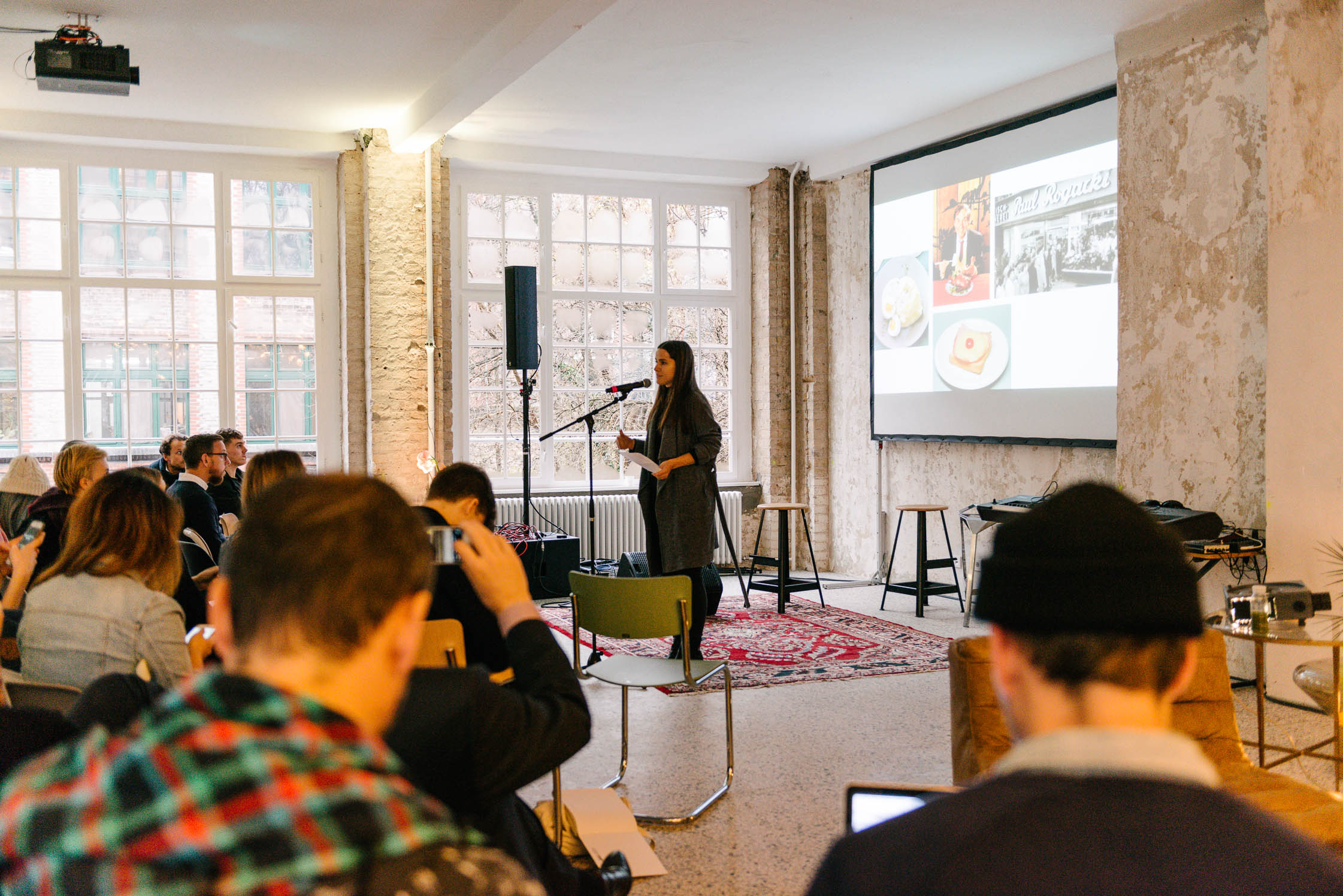
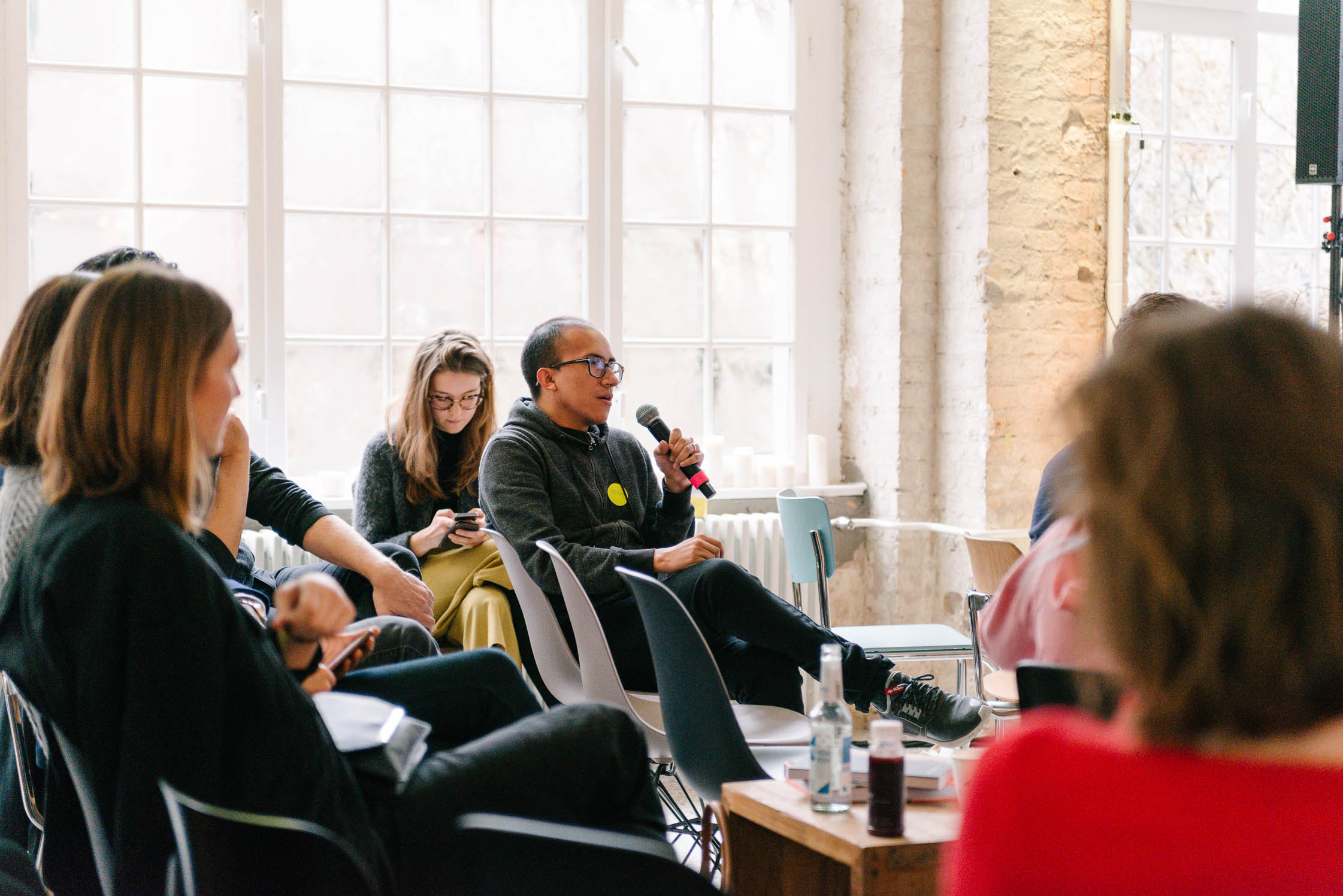
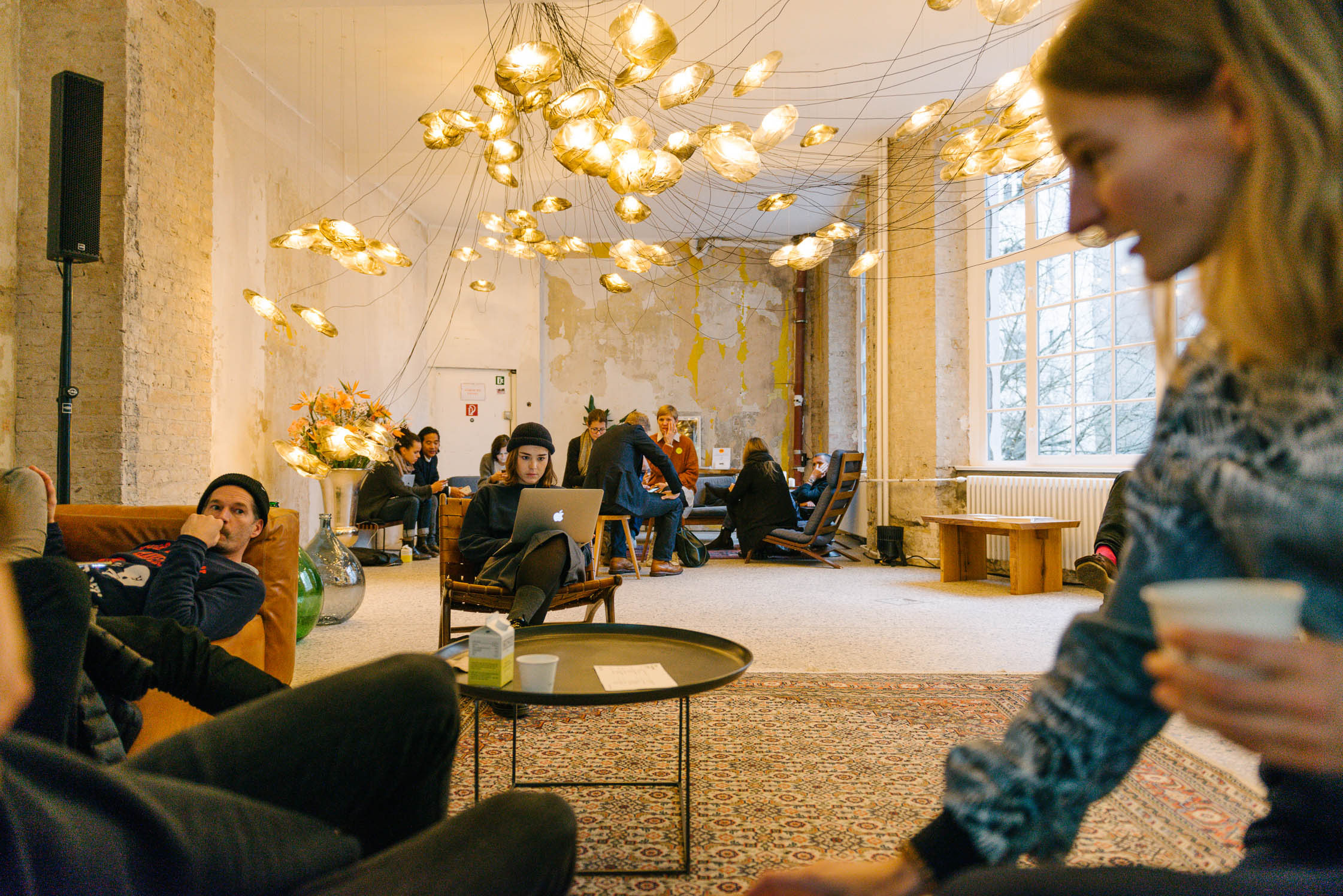
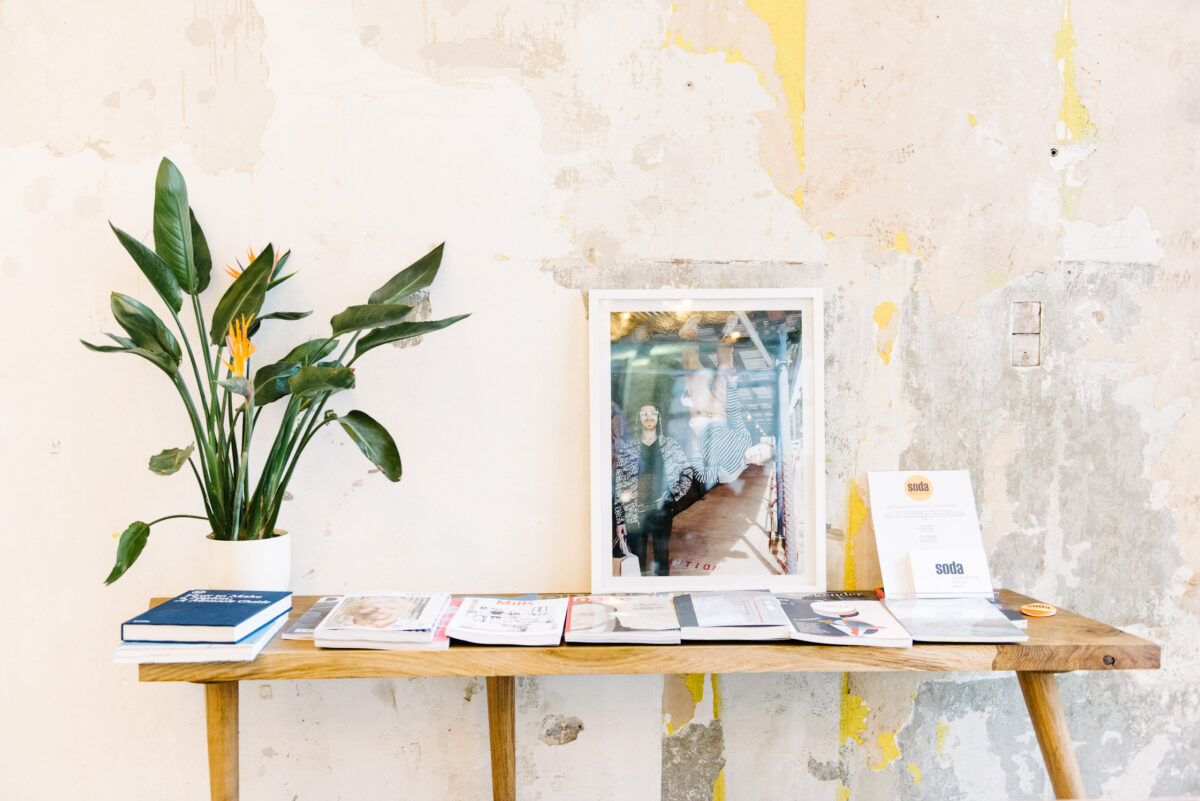
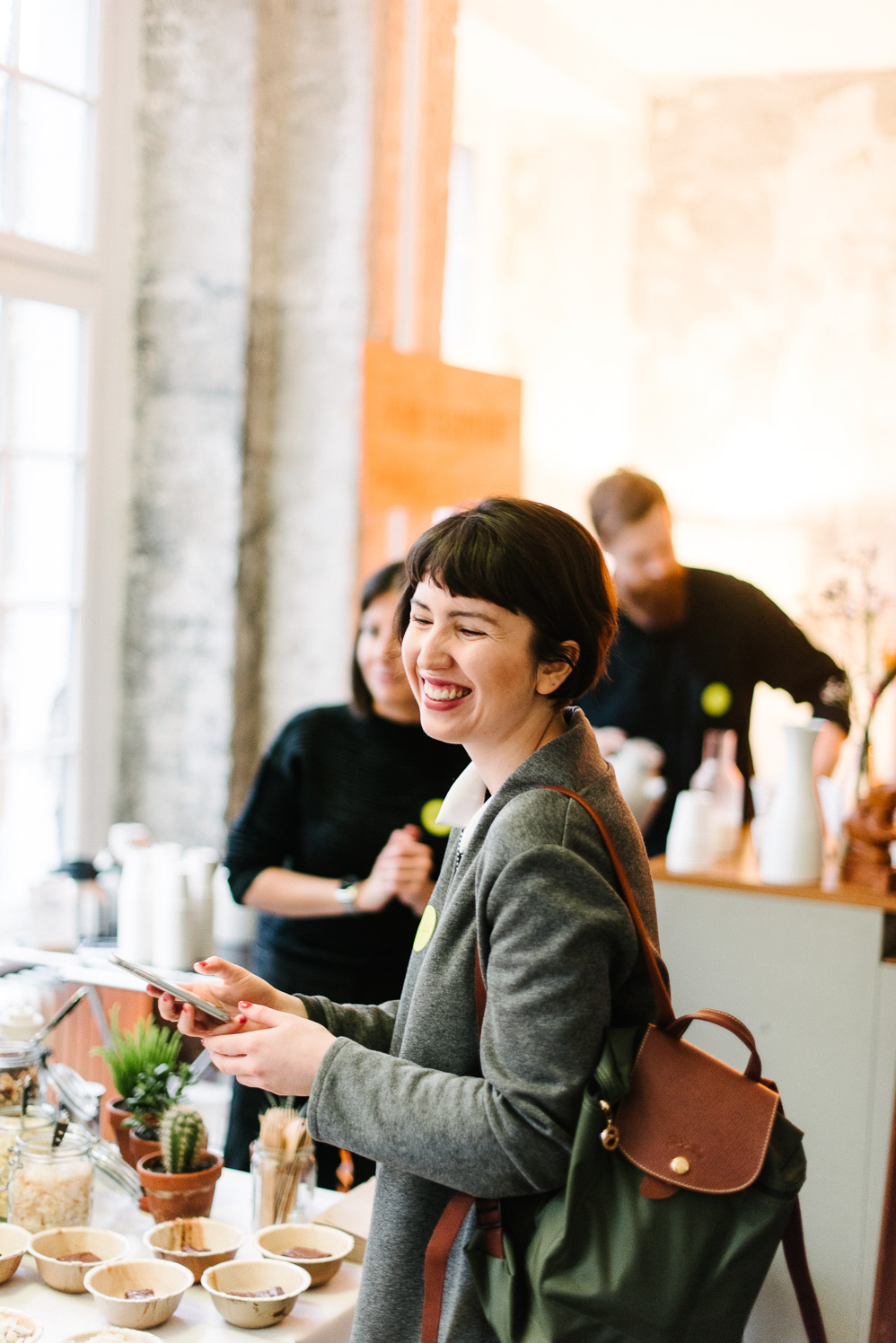
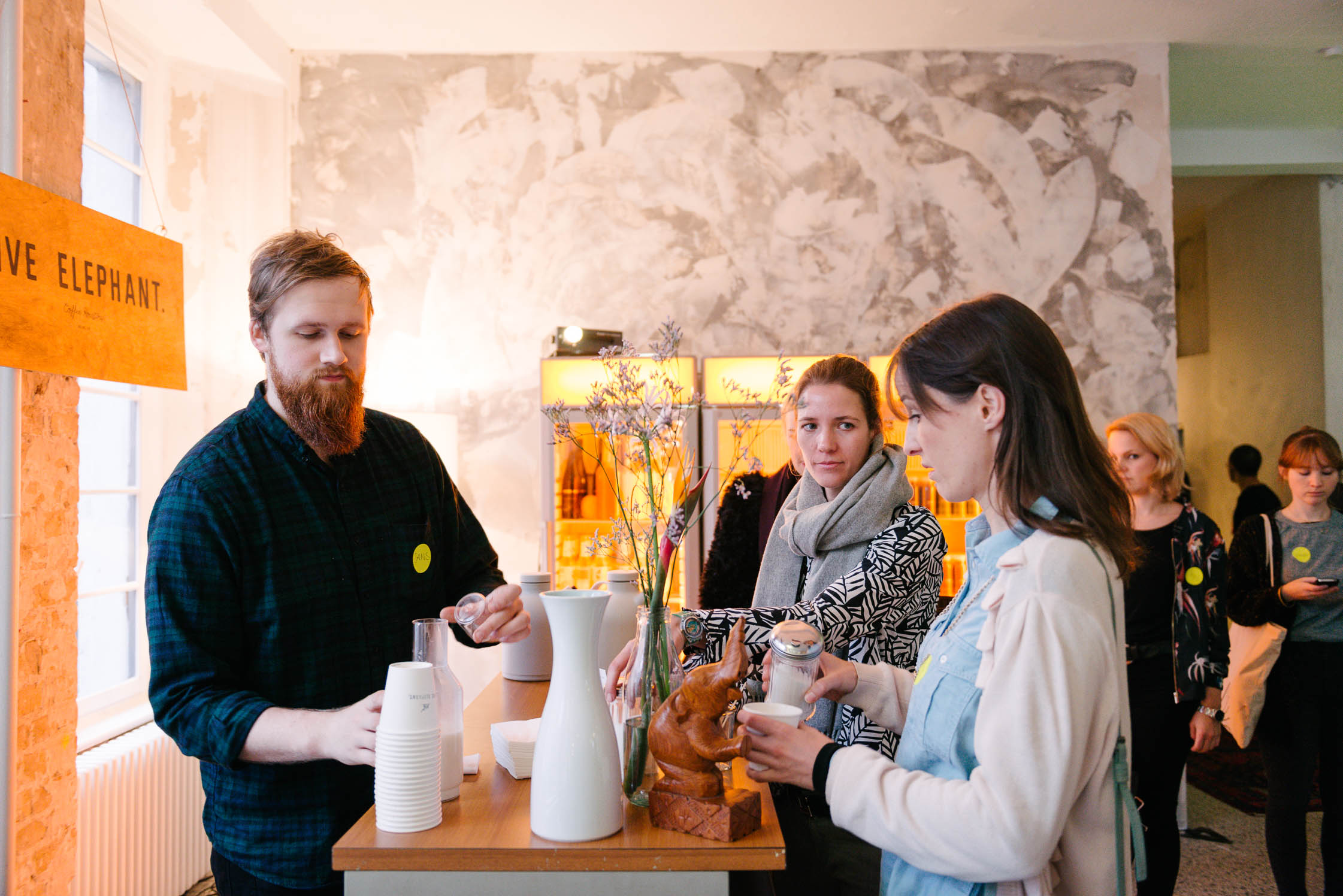
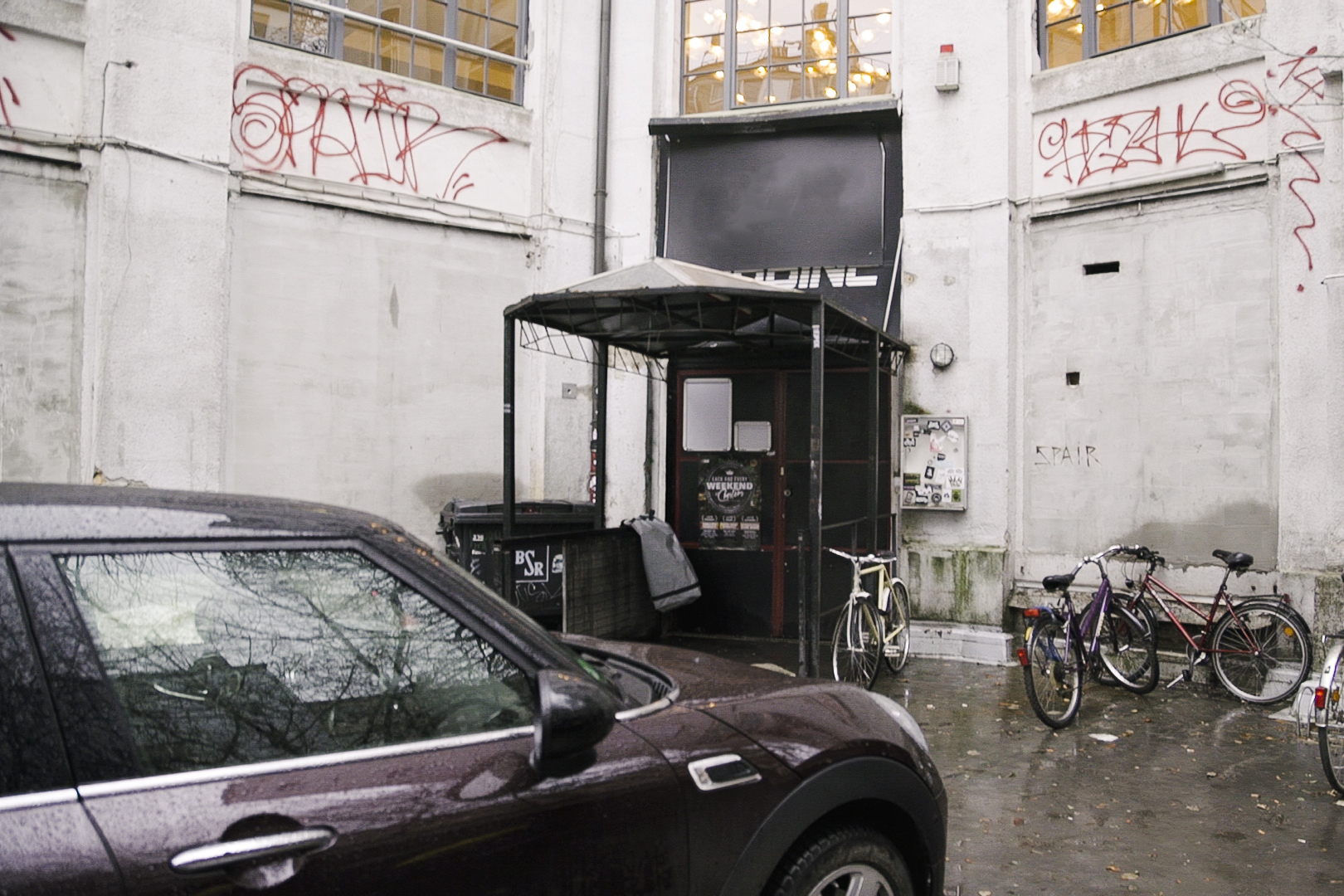
For a substantial section of the audience, Werner Aisslinger required no introduction. The acclaimed German designer has moved effortlessly through the worlds of architecture, industrial and product design for decades now, every new project tied together by his embrace of technologies that respond to our ever-changing world. His work is exhibited in the permanent collections of museums such as MOMA, the Metropolitan Museum of New York, the Vitra Design Museum in Weil and many, many others. At The Sooner Now however, he focused on his latest exhibition, The House Of Wonders at the Munich Pinakothek der Moderne.
We’re often completely wrapped up in our belief that the technologies of the future will be defined by perpetual forward motion, so it was fascinating to see the stately Aisslinger drawing heavily on our agrarian past to inform new solutions. “Name me a film since 2001: A Space Odyssey that has shown us anything new in the way that the future will look or be,” he said at one point in response to a question. His talk called to mind, for me at least, the most biting of future-present gazers, J. G. Ballard—albeit in an altogether gentler and more optimistic manner. “I think the future has been annexed into the present,” the British science-fiction writer once said. “Occasionally a futuristic image is trotted out, ransacked like an image of the past and absorbed into the ongoing continuum, that represents present-day life.”
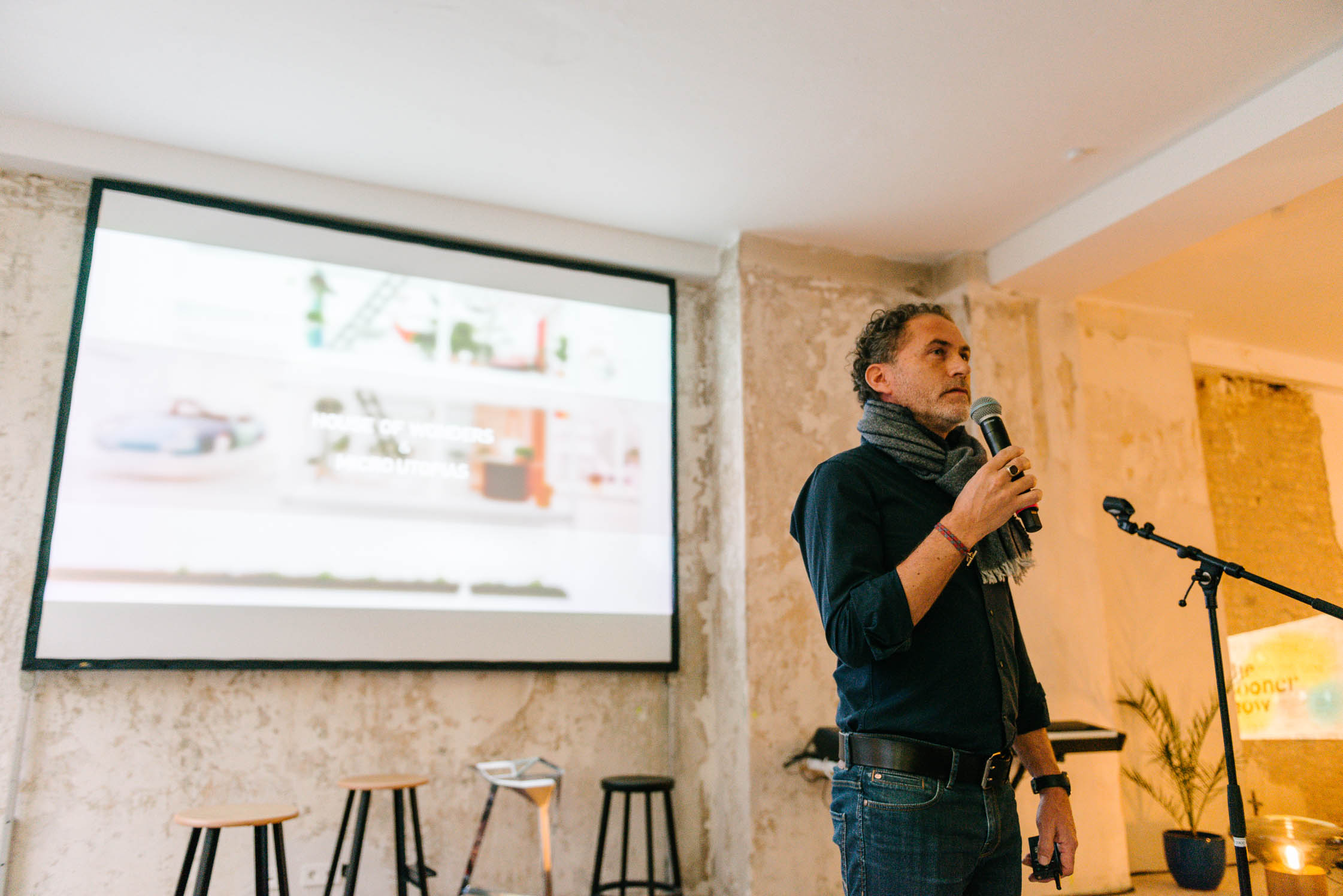
“I believe reality is something that we create together. It’s something we negotiate.”
The final keynote speaker was Corinna Sy, whose soft-spoken manner belied the force of conviction that comes with devoting your life to helping refugees. It was not lost on the audience however, who perhaps saw in Corinna exactly the transformation from thinking-into-practice we were all yearning for to varying degrees.
Her organization, Cucula, supports newly arrived refugees in both the training and production of furniture, based on the open-source designs of Enzo Mari. Corinna spoke movingly of the perseverance required to navigate both the physical and bureaucratic obstacles involved in bringing such a project to fruition. At one point she flashed some words from Danish-Icelandic artist and Cucula supporter, Olafur Elliason up on the screen behind her. “What is reality?” It said. “I believe reality is something that we create together. It’s something we negotiate. Cucula doesn’t accept the current reality of refugees in Germany, instead it strives to create a different reality.” Corinna left the stage to the biggest applause of the day, well deserved.
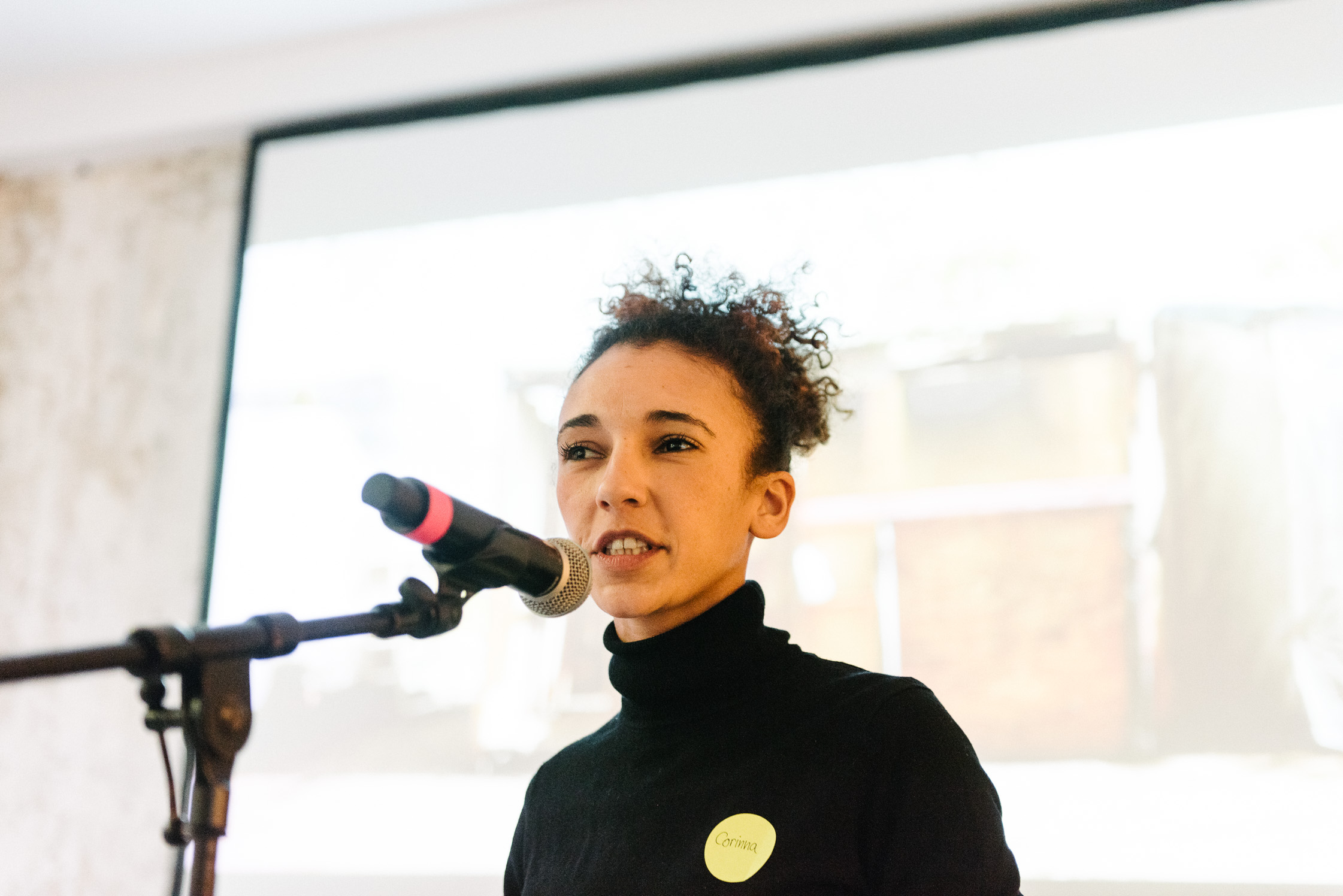
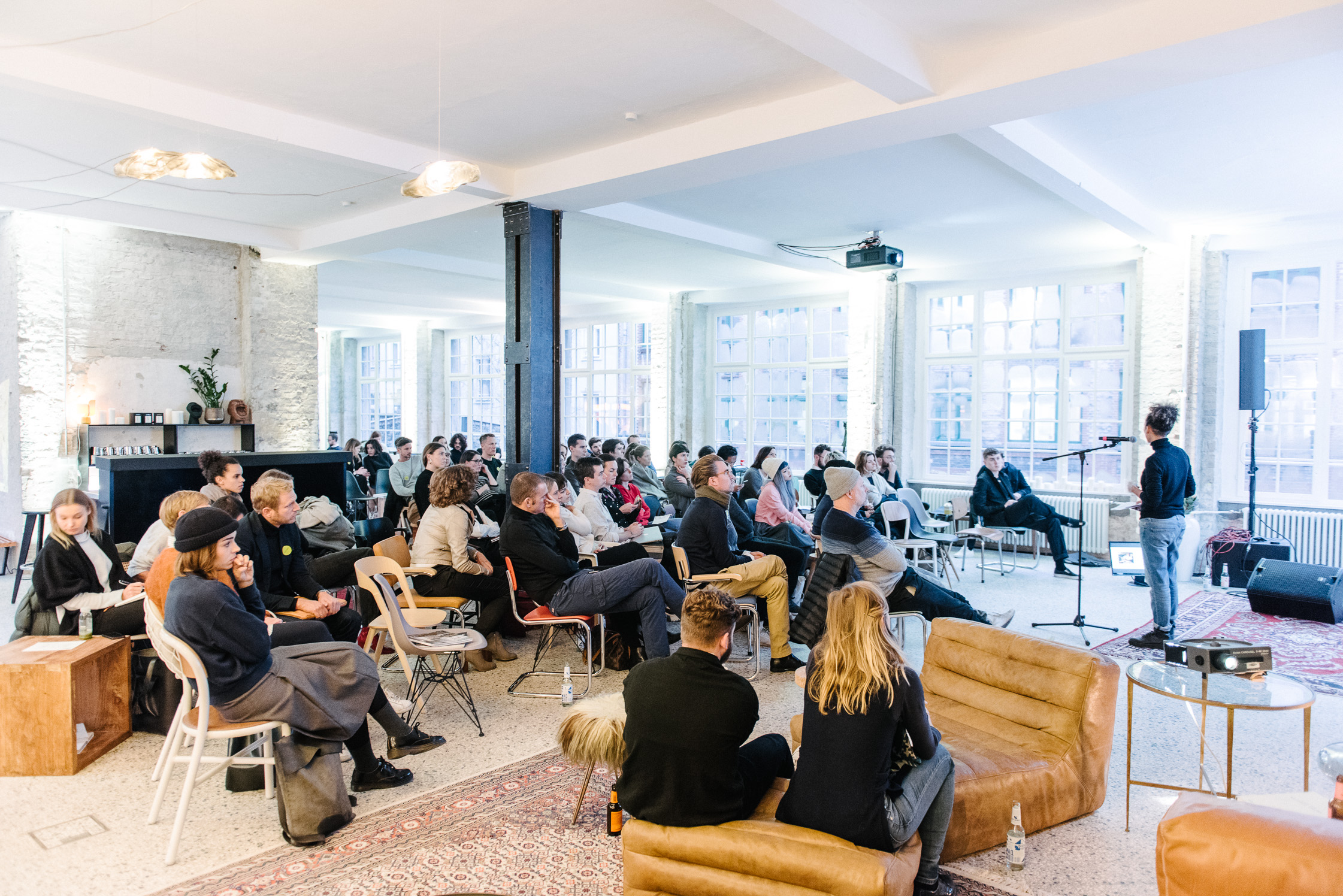
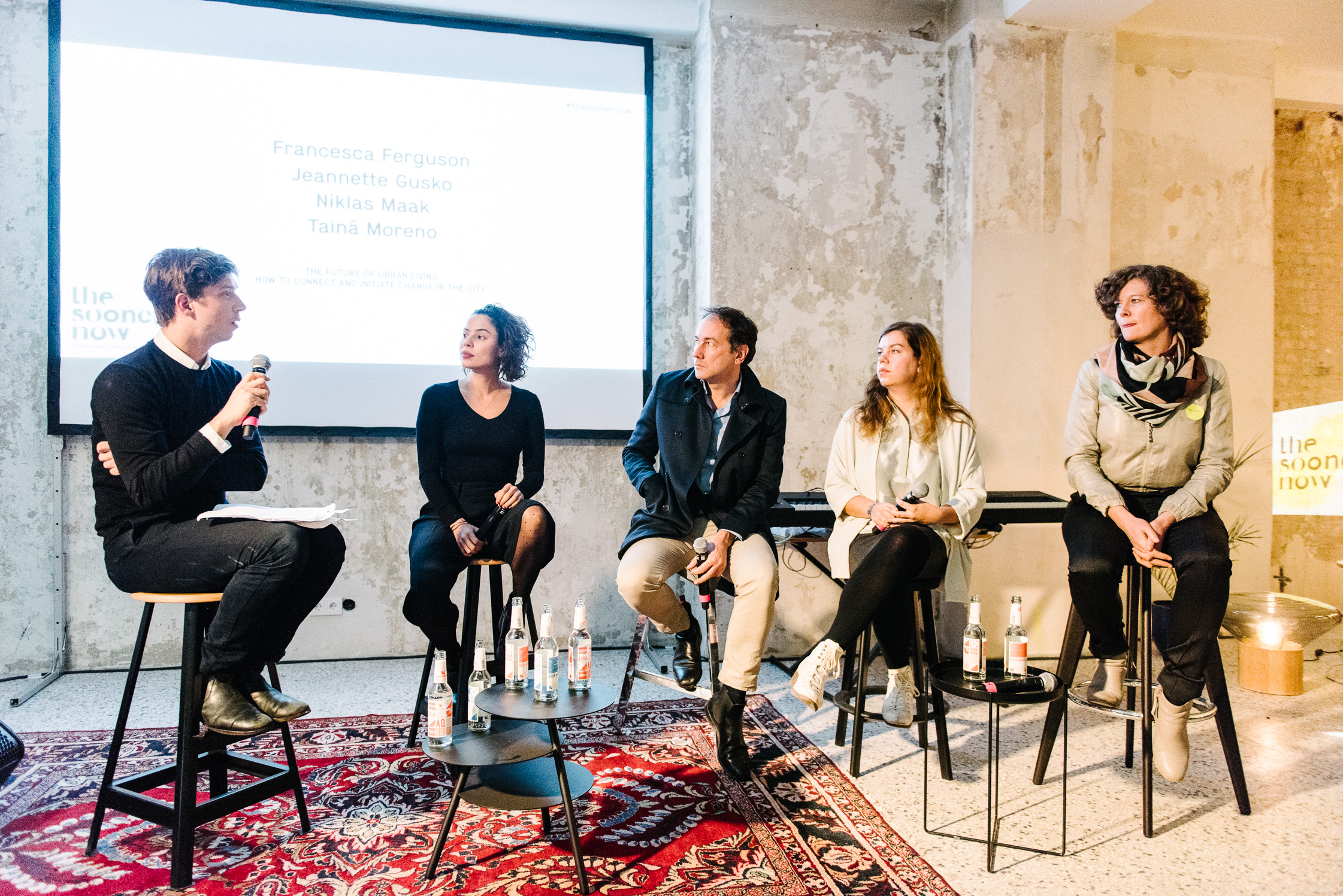
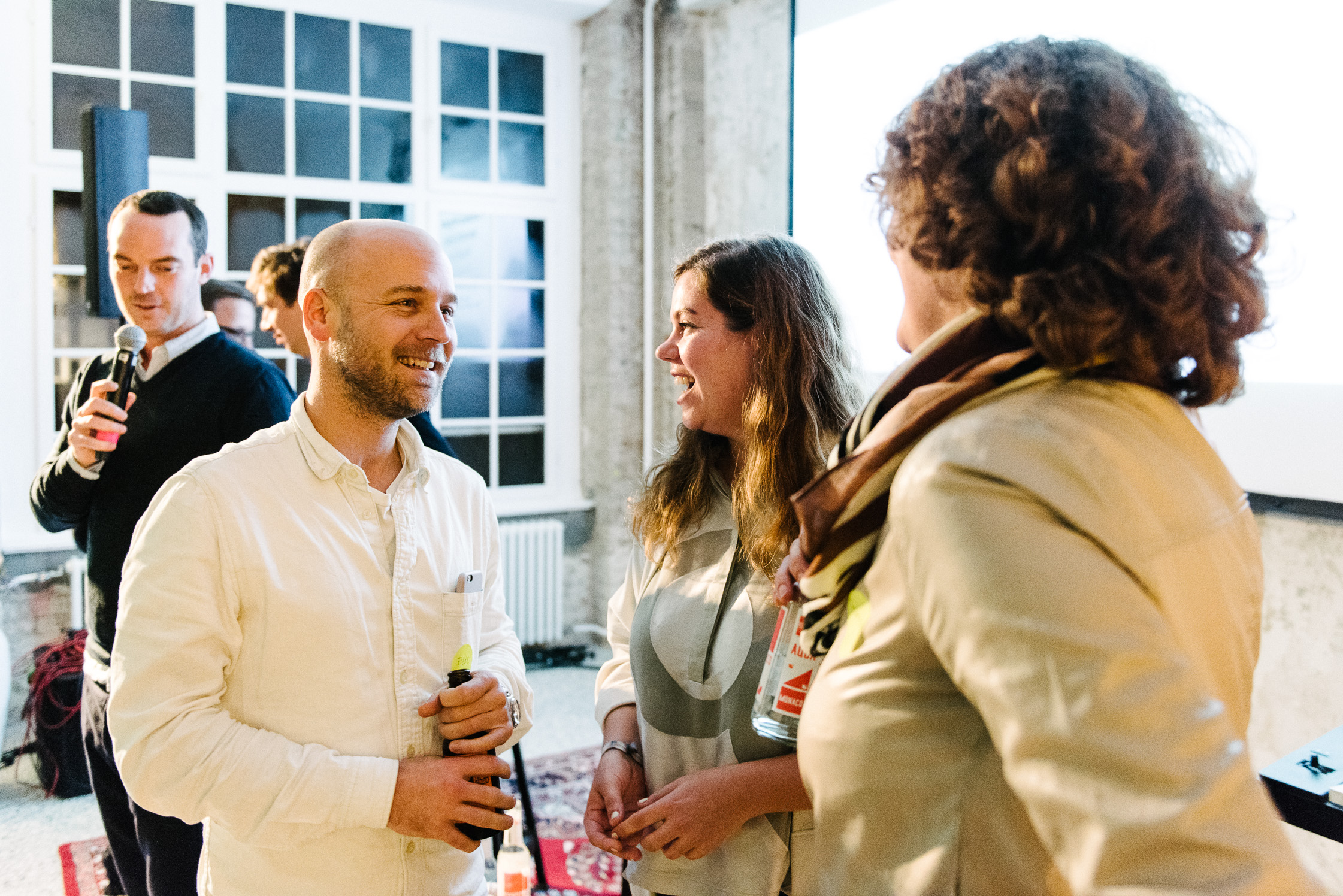
And so The Sooner Now drew to a close, crescendoing in a captivating, extended panel discussion between Francesca Ferguson, Jeanette Gusko, Niklas Maak and Taina Moreno, hosted by the futurist and urbanist Ludwig Engel. It both typified and took to new, impassioned examination of the day’s themes: Ferguson’s opening statement was a warning shot across the bow of those among us still thinking we could submerge ourselves in the comforting creative cliques we have formed; Maak’s outspoken critique of the architectural and political response to current political crises was nevertheless couched in real, in-motion plans to combat them. Ultimately—and as with every previous speaker—it felt like we were hearing the ripe possibilities of the future, today.
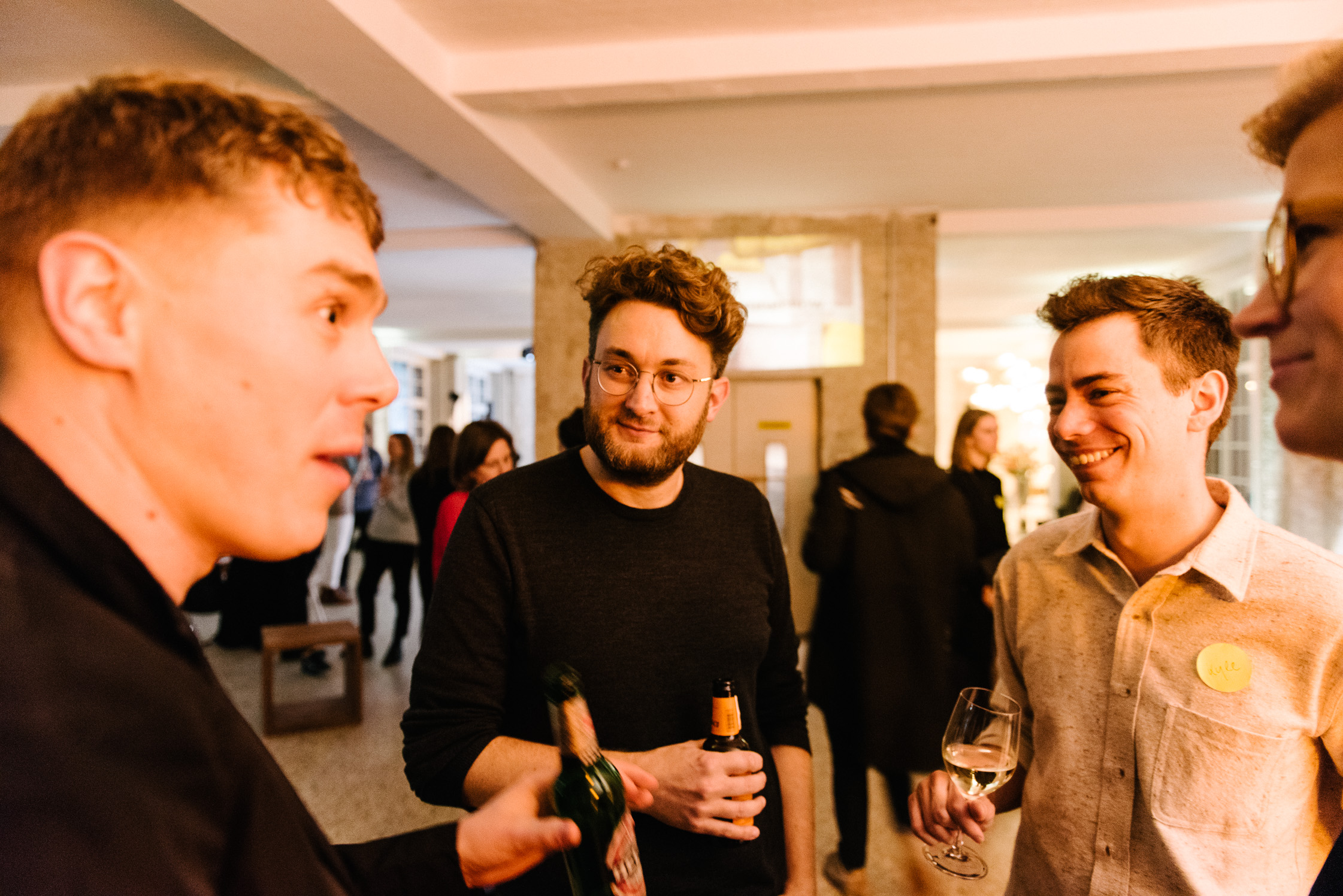
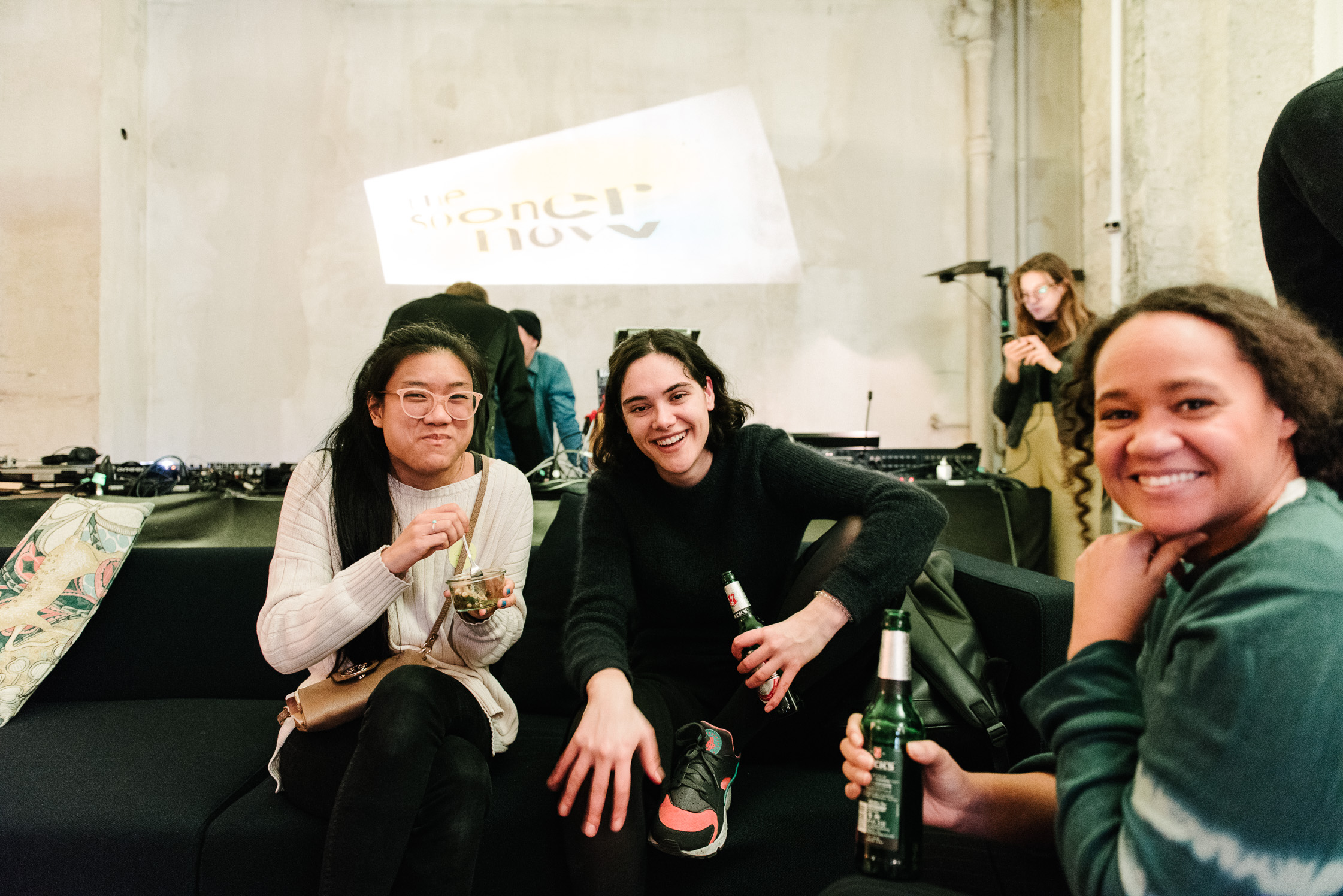

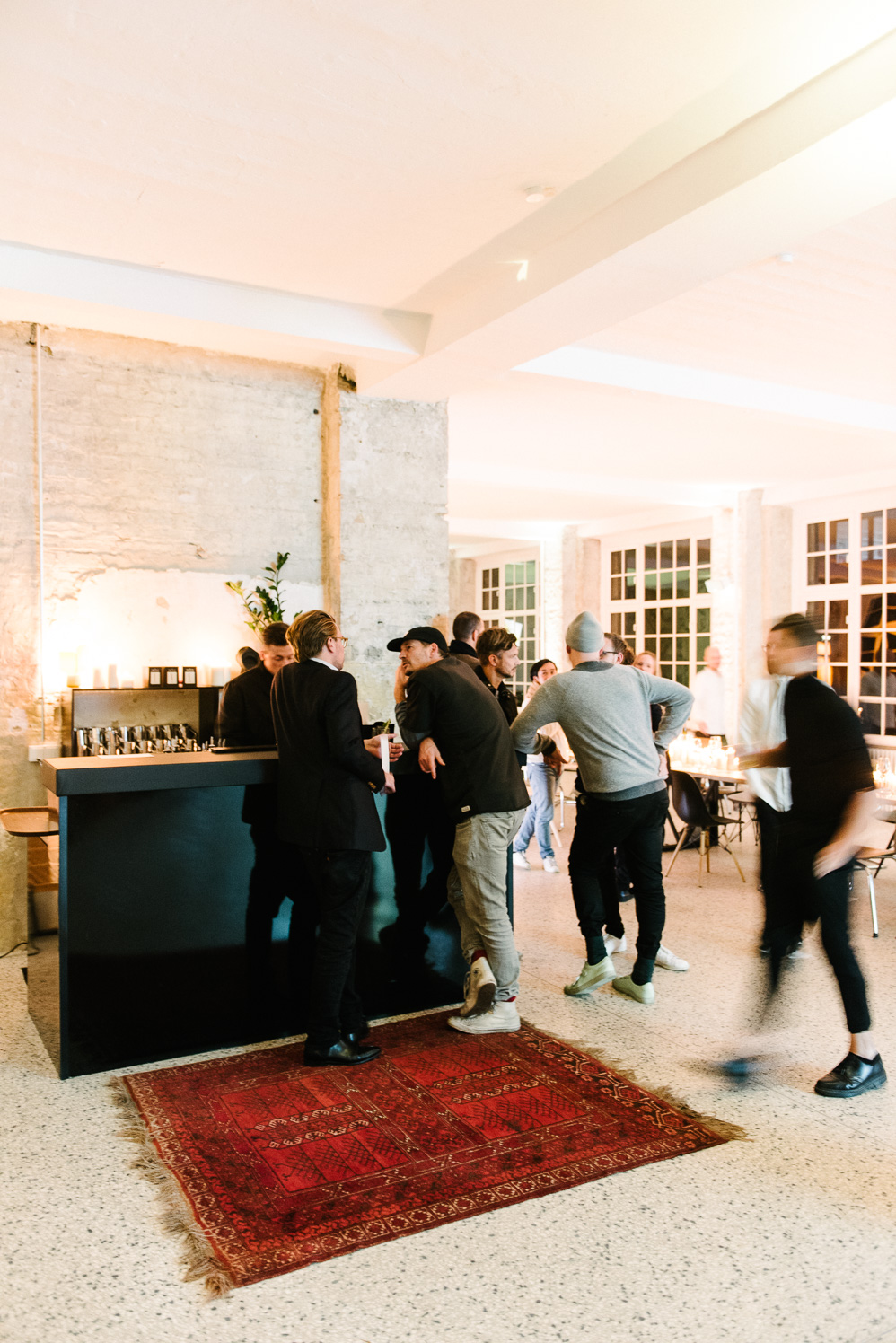
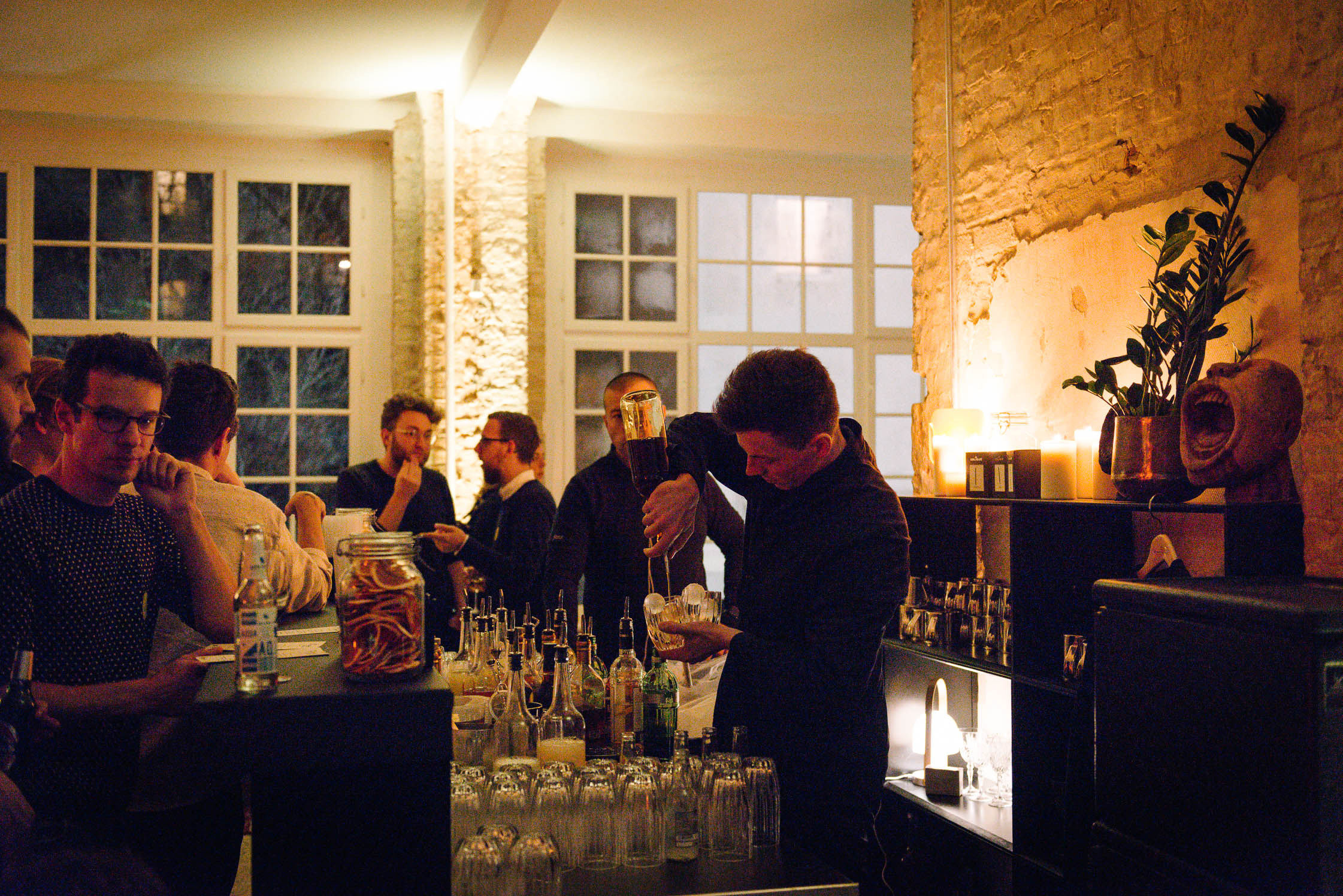
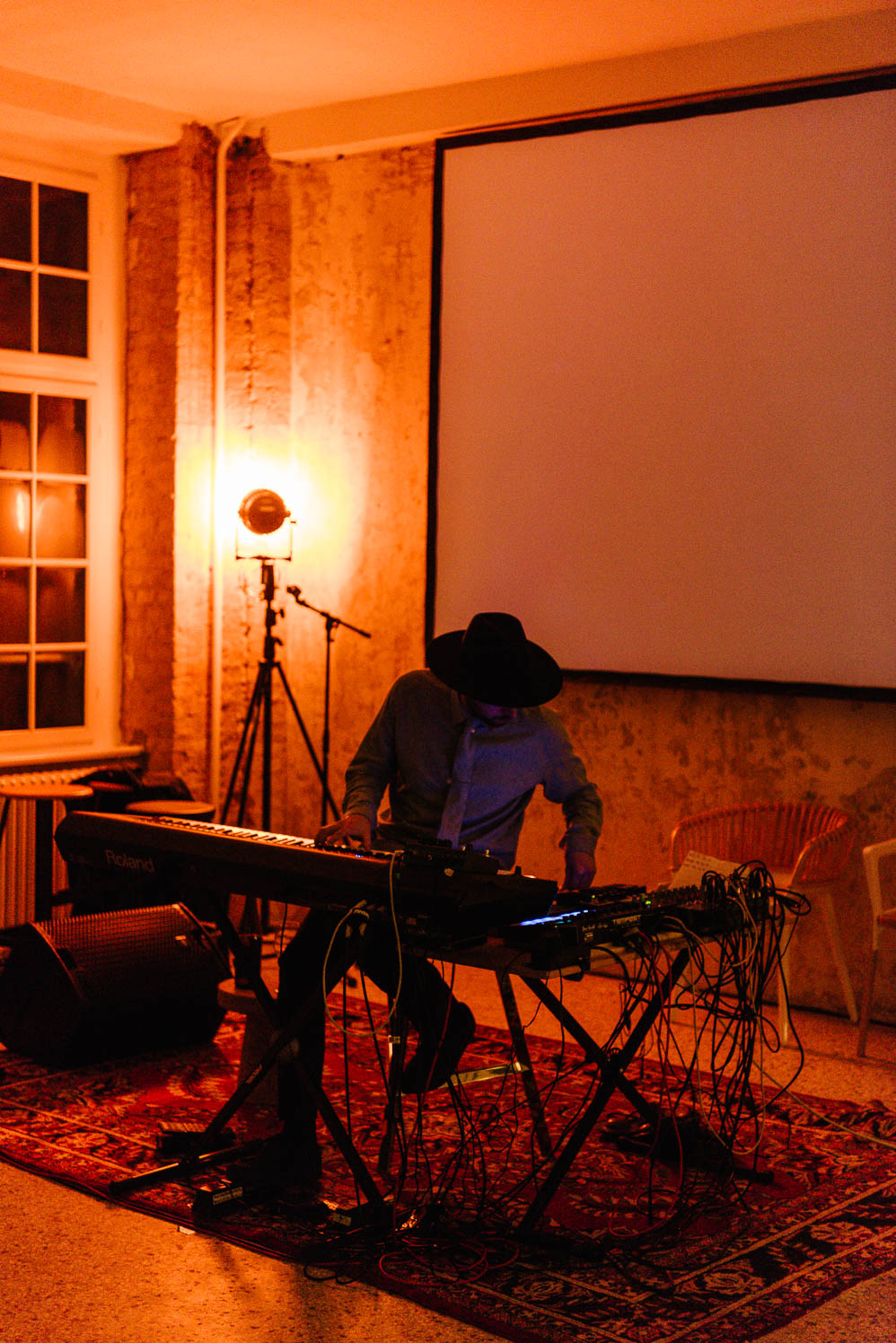
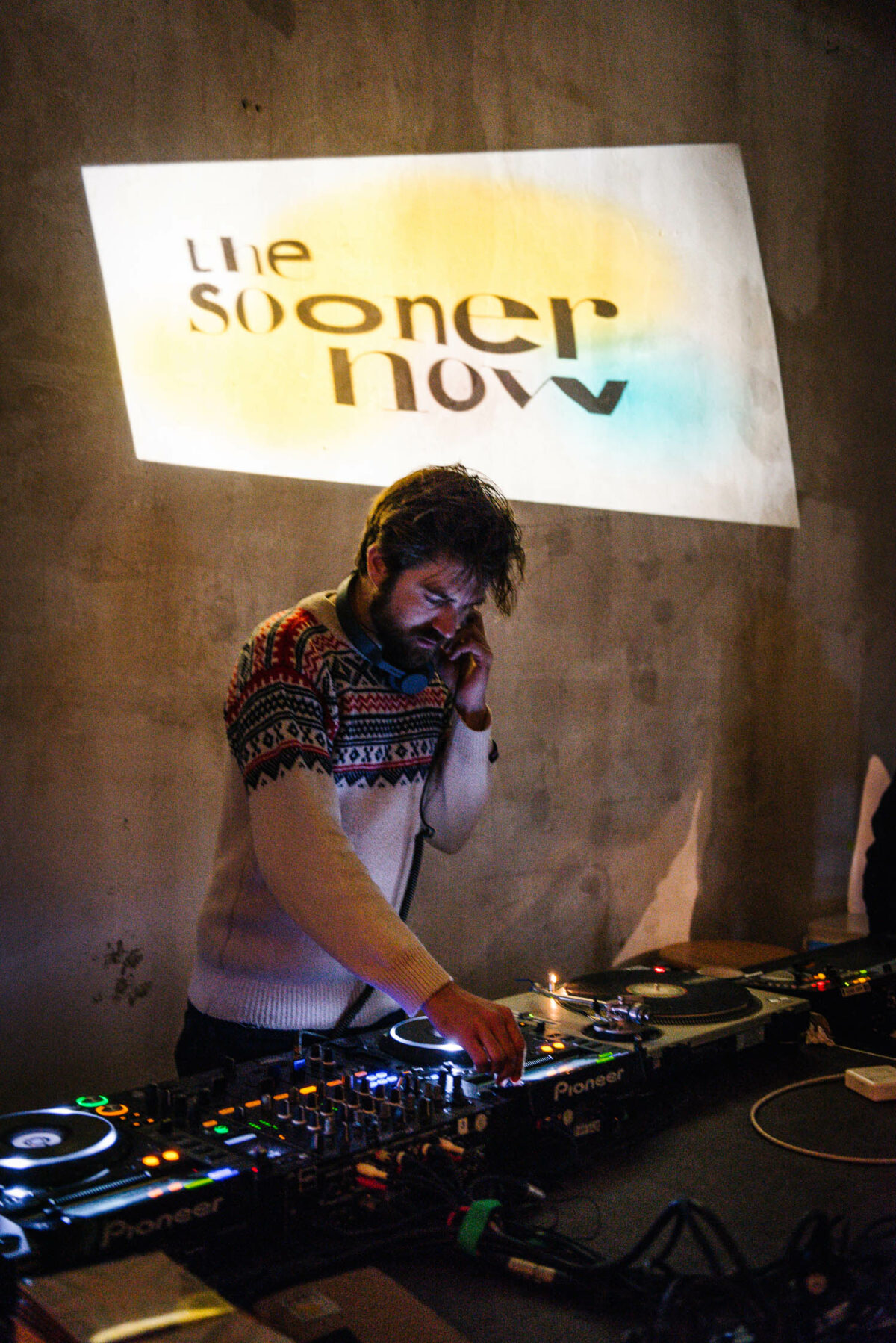
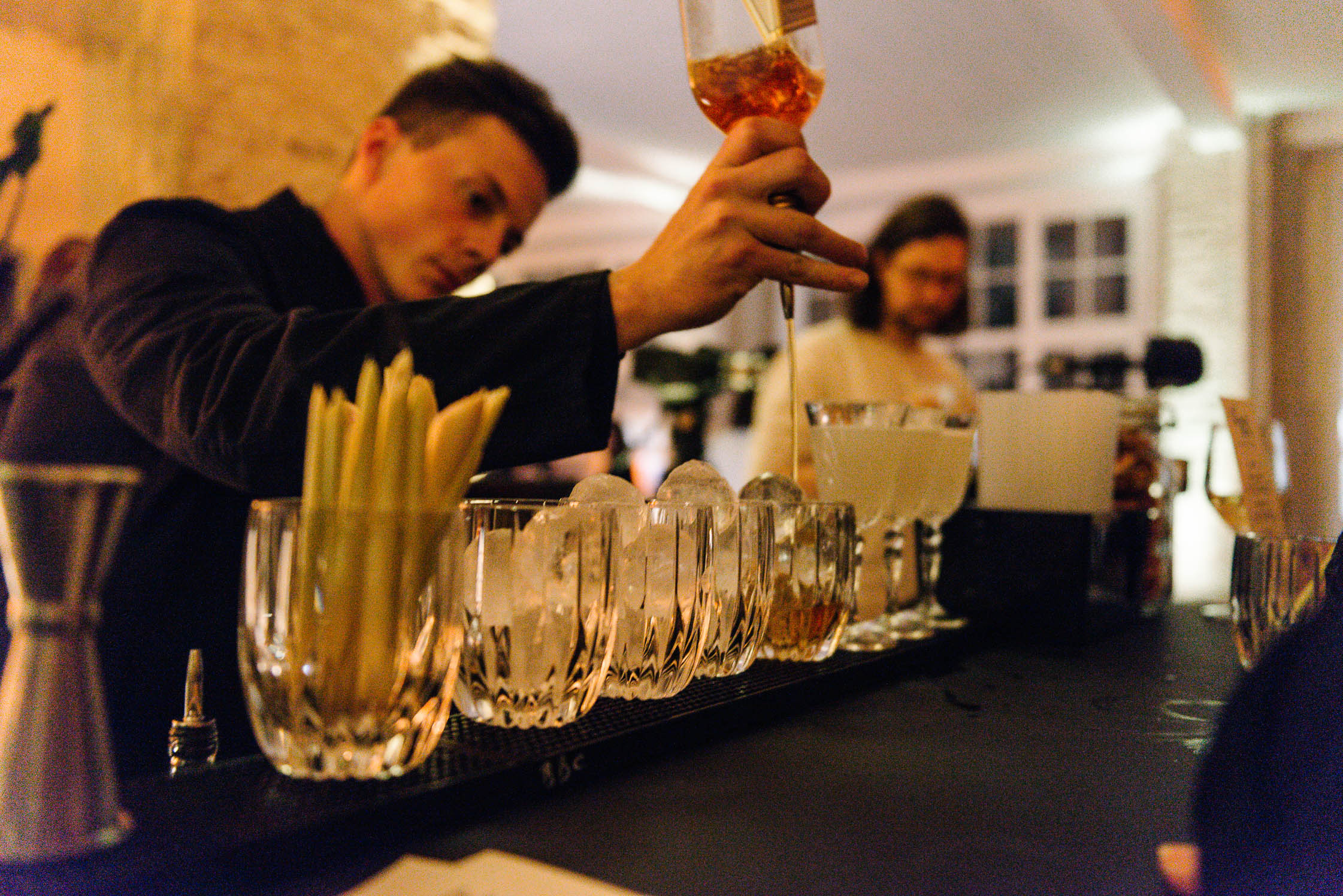
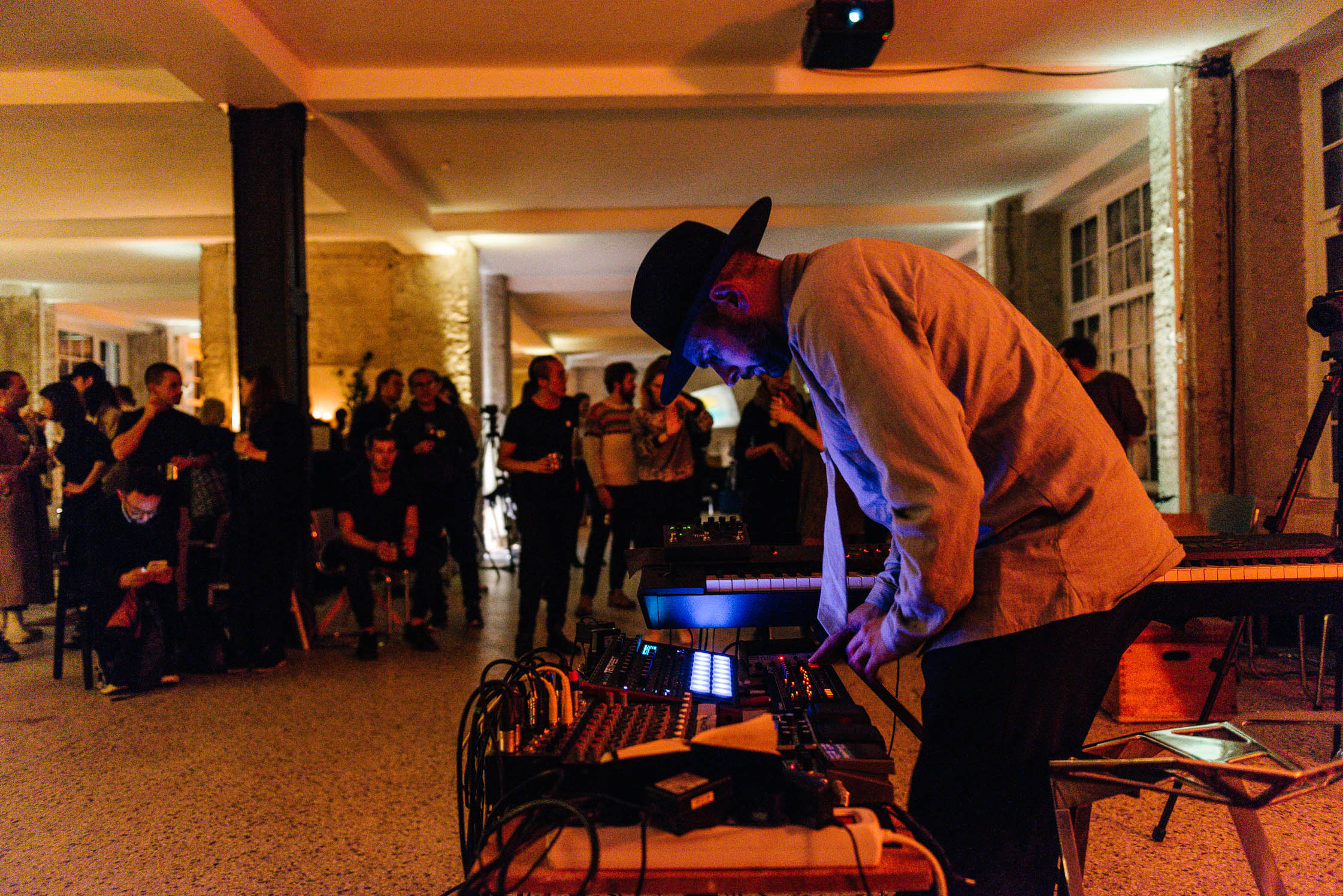
enabled by

Thank you James for hosting The Sooner Now and giving us all a nice recap of the event’s discussions.
The Sooner Now is a new event series that FvF is producing in proud collaboration with MINI, as we explore the future of urban living through interactive discussions with guests from within the FvF network. This first edition of The Sooner Now took place at the FvF Friends Space located in the heart of Kreuzberg, Berlin. Keep an eye out for future iterations of The Sooner Now here.
Text: James Darton
Photography: Daniel Müller & Robert Rieger
